M.C. Miller's Blog, page 2
May 23, 2018
Transformation
Published on May 23, 2018 11:16
May 16, 2018
May 7, 2018
Sundry PicsRainbow Hits the New CathedralBack from the Me...
Sundry Pics
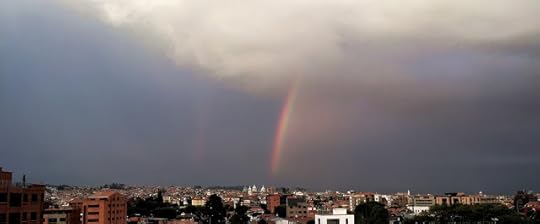 Rainbow Hits the New Cathedral
Rainbow Hits the New Cathedral
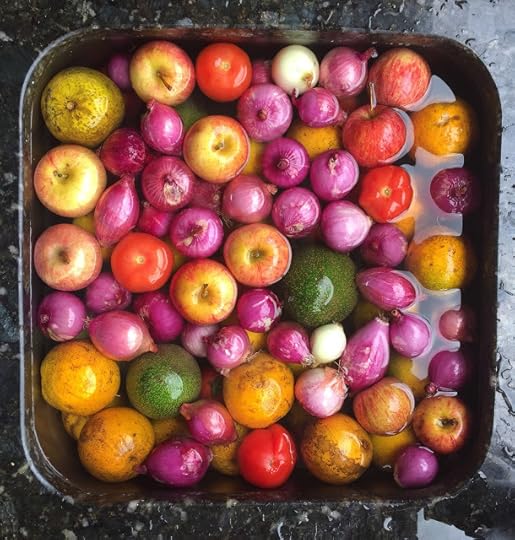 Back from the Mercado
Back from the Mercado
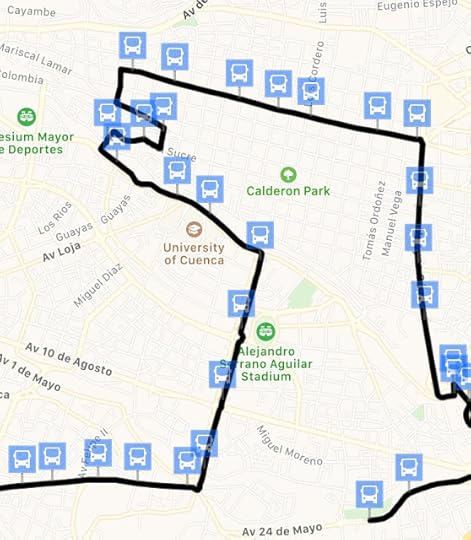 Parada de Bus
Parada de Bus
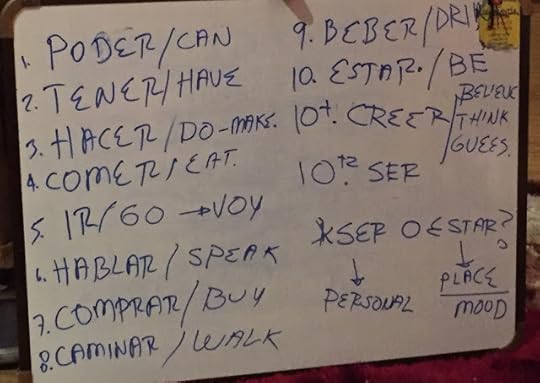 Language Exchange
Language Exchange
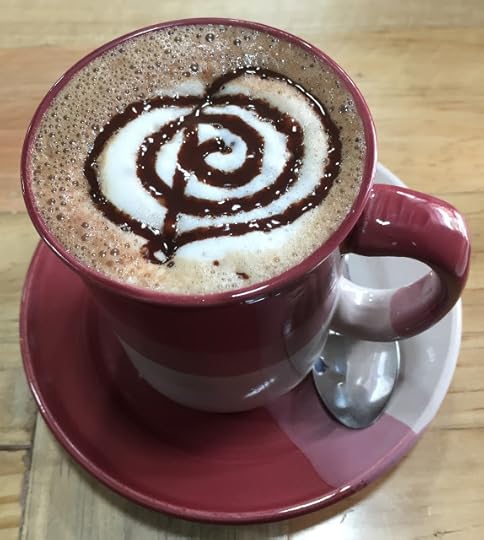 Café Especial
Café Especial
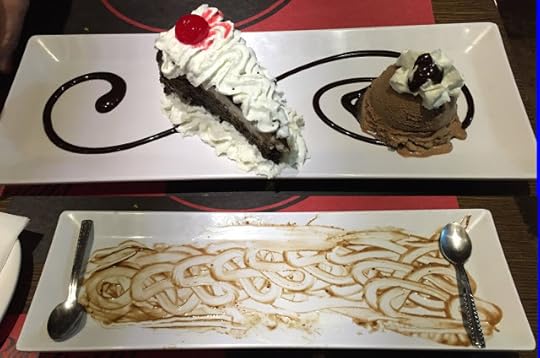 Before and After
Before and After
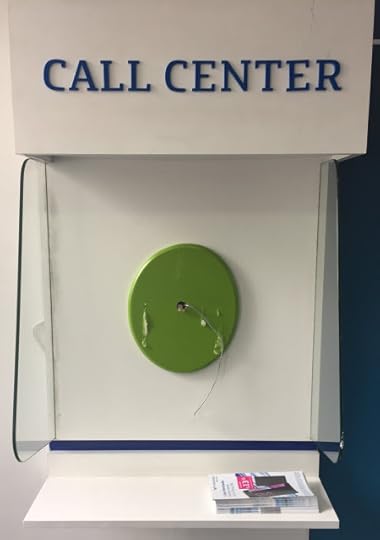 Call Center
Call Center
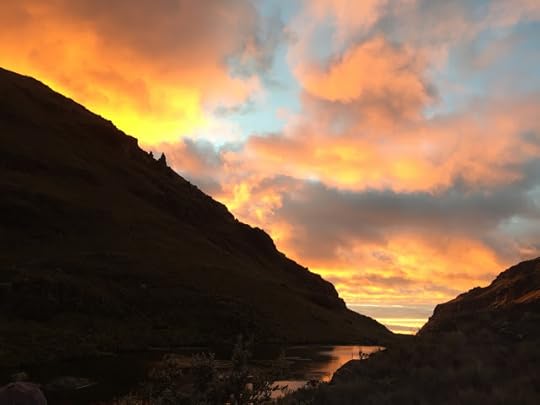 Sunset in Cajas
Sunset in Cajas
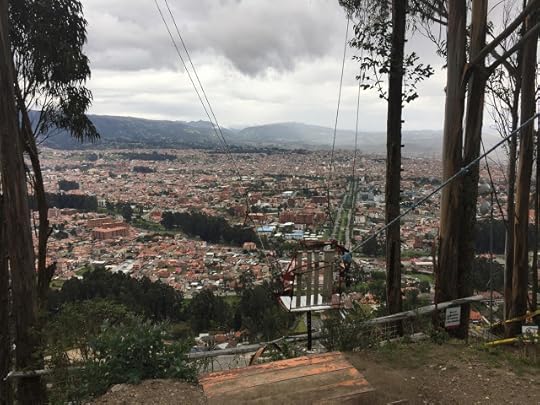 Swing at Turi
Swing at Turi
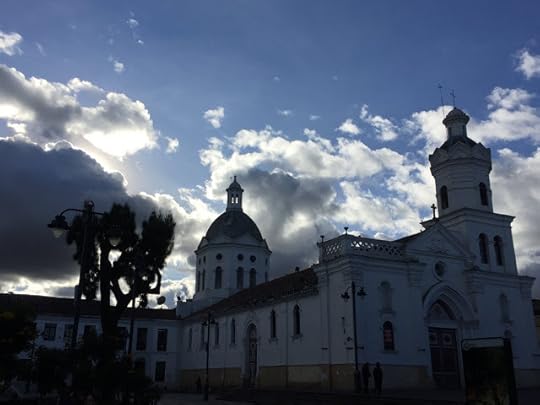 San Sabastian
San Sabastian
 "Monkey"
"Monkey"
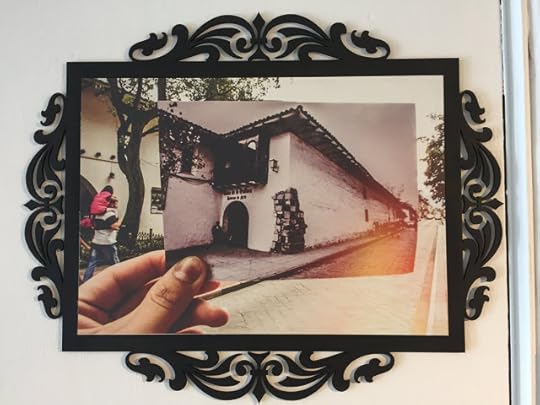 Museum Piece
Museum Piece
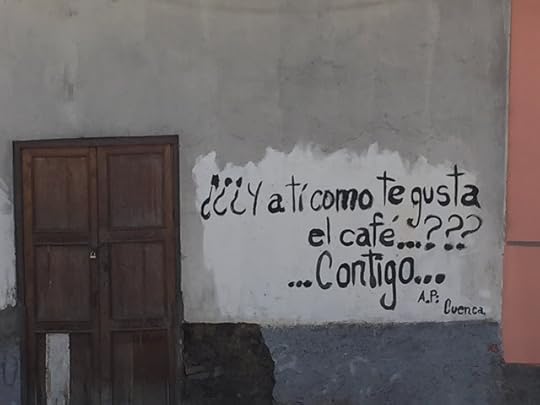 El Centro Graffiti
El Centro Graffiti
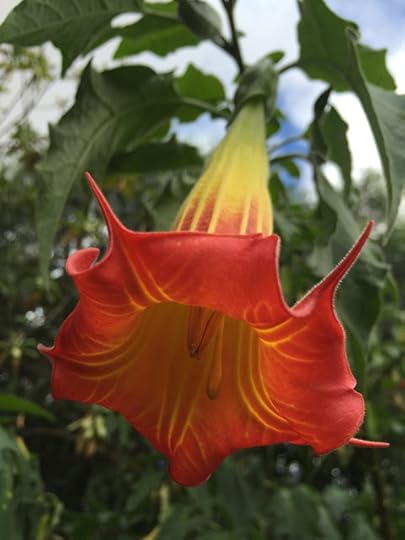 Flower
Flower
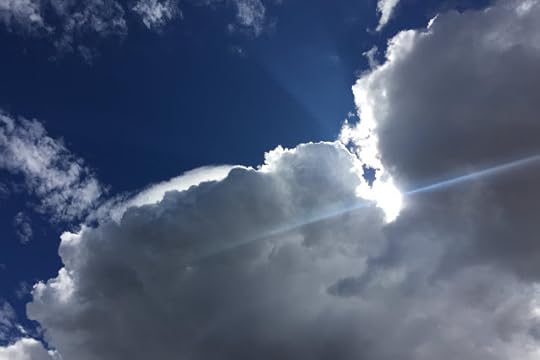 The Sun Shines Through
The Sun Shines Through
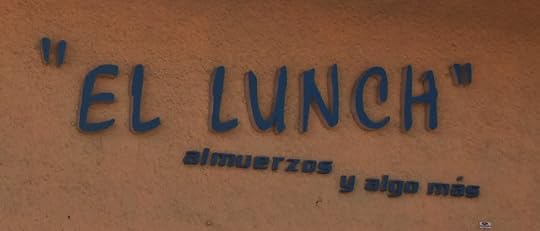 El Lunch
El Lunch
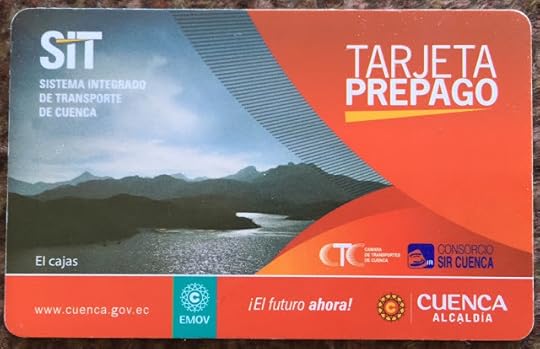 SIT Card
SIT Card
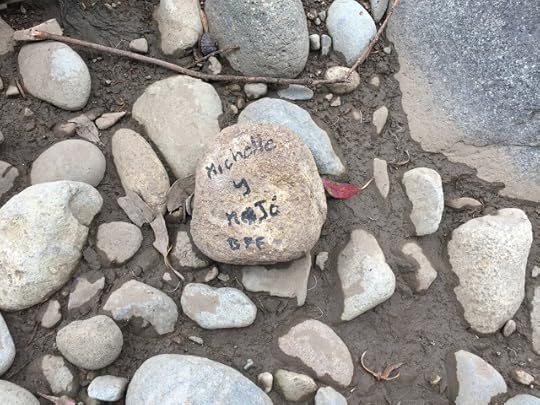 Message on Rock, seen when Tomebamba River is low
Message on Rock, seen when Tomebamba River is low
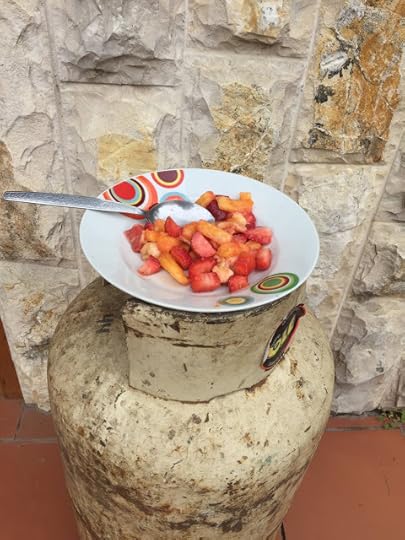 Fruit Snack
Fruit Snack
 Rainbow Hits the New Cathedral
Rainbow Hits the New Cathedral Back from the Mercado
Back from the Mercado
 Parada de Bus
Parada de Bus Language Exchange
Language Exchange
 Café Especial
Café Especial
 Before and After
Before and After Call Center
Call Center Sunset in Cajas
Sunset in Cajas
 Swing at Turi
Swing at Turi San Sabastian
San Sabastian
 "Monkey"
"Monkey"
 Museum Piece
Museum Piece
 El Centro Graffiti
El Centro Graffiti Flower
Flower The Sun Shines Through
The Sun Shines Through El Lunch
El Lunch
 SIT Card
SIT Card Message on Rock, seen when Tomebamba River is low
Message on Rock, seen when Tomebamba River is low Fruit Snack
Fruit Snack
Published on May 07, 2018 15:32
May 4, 2018
¡Mucho Peligro! ¡Ay Dios Mío!I don't know how ...
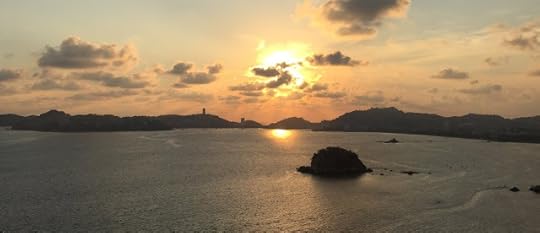
¡ Mucho Peligro! ¡Ay Dios Mío! I don't know how I managed to survive my trip to Acapulco. There have been so many official warnings for tourists and foreign visitors of every kind. I guess my years living outside the States have crazily made me risk adverse, or maybe it detoxed me from being addicted to drama and led by the standard echo-chamber narrative. If I had believed the 24/7 fake news drama factory and government alerts, the lame idea of setting foot on Acapulco beach was tantamount to taking my life in my hands.
Much danger! So many official sources echoed the same thing. Fortunately, the 24/7 news drama factory and government lost credibility with me years ago. As it turned out, I took my life in my hands and discovered I was in much danger of enjoying myself. So much so that I lazed away, too relaxed to bother to take many photos, which is not usually the way I roll on vacation. Even so, I managed to get a few reasonable pics. I won't narrate them since no one wants to read a bunch of stuff anyway - not when there's pics to scan quickly before you bounce off this page and get back to your Instagram. Paso bien amigo.
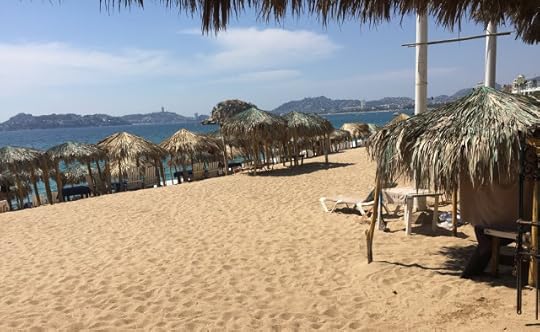
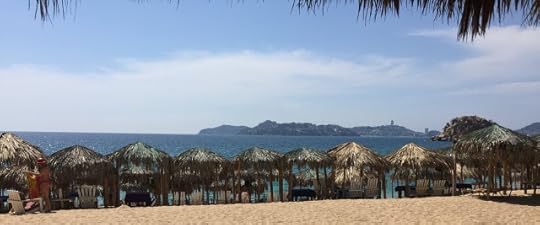
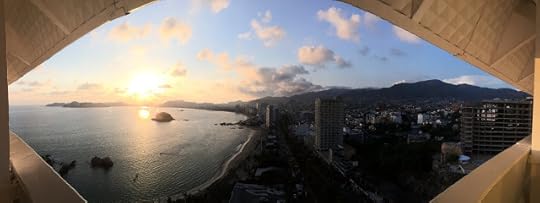

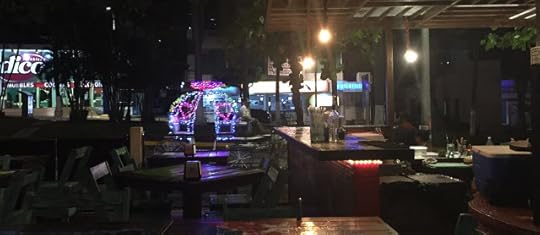
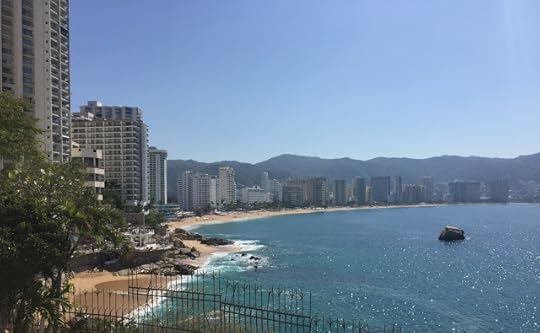

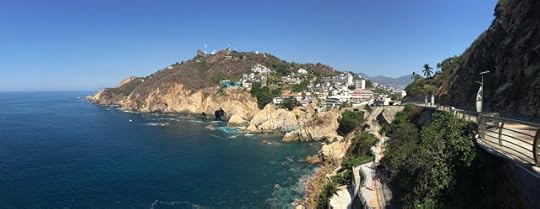
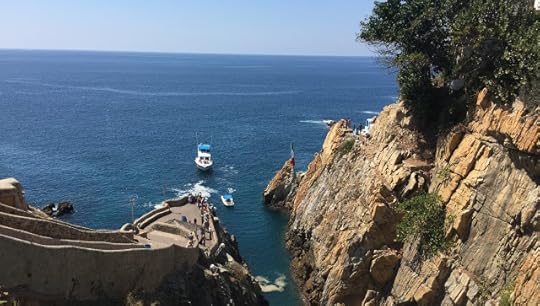
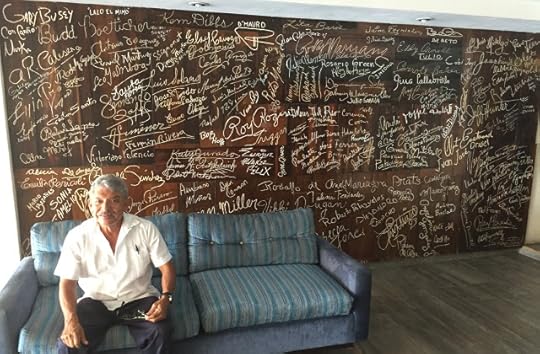
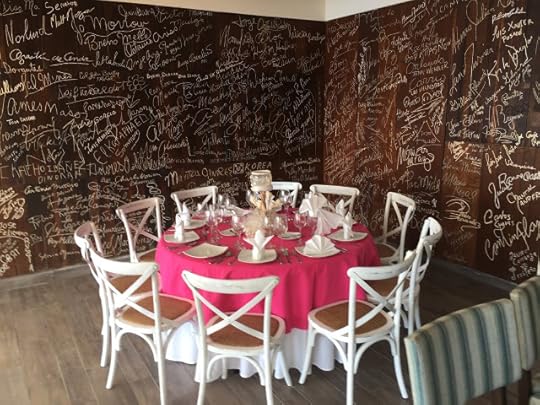

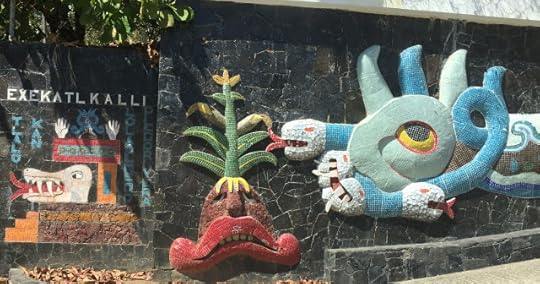
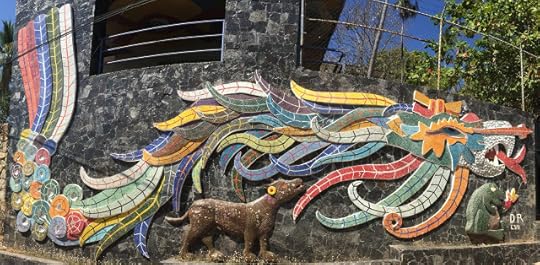
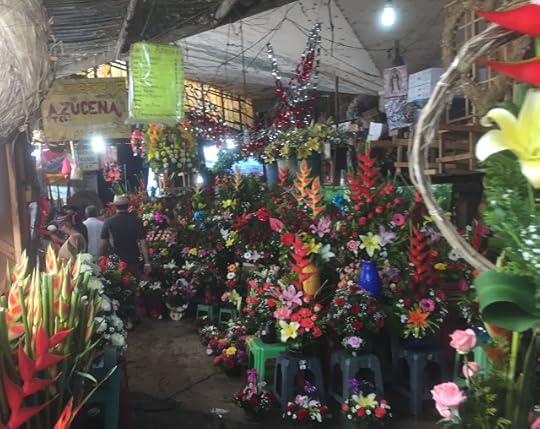
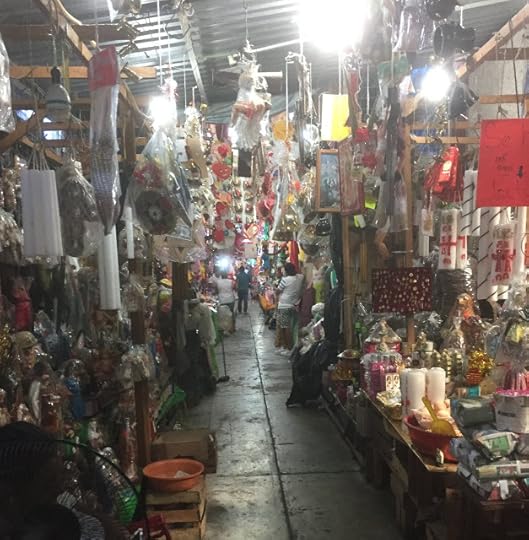
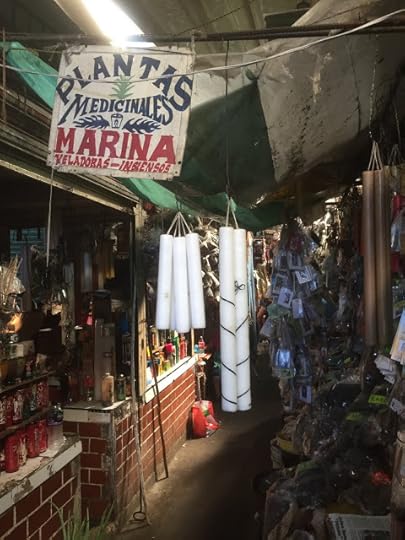
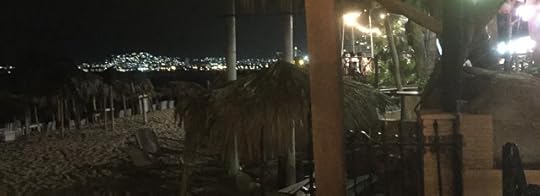
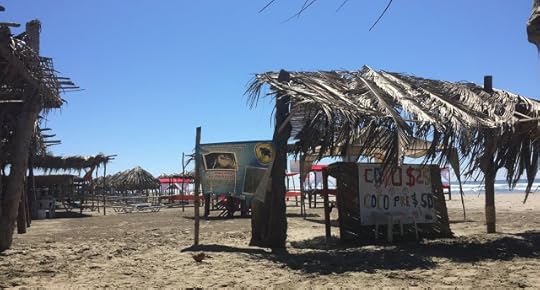
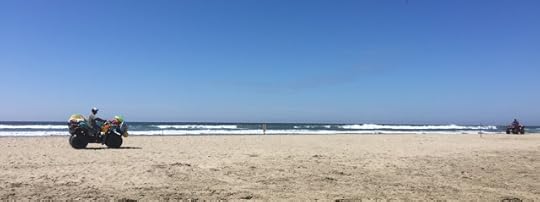
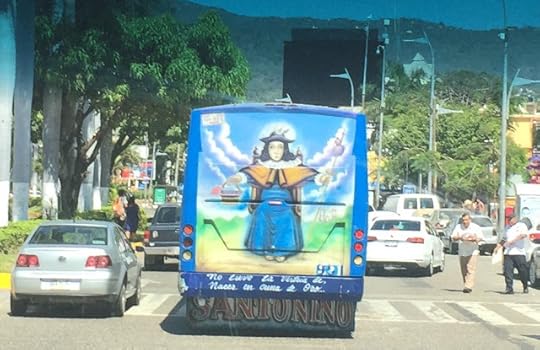
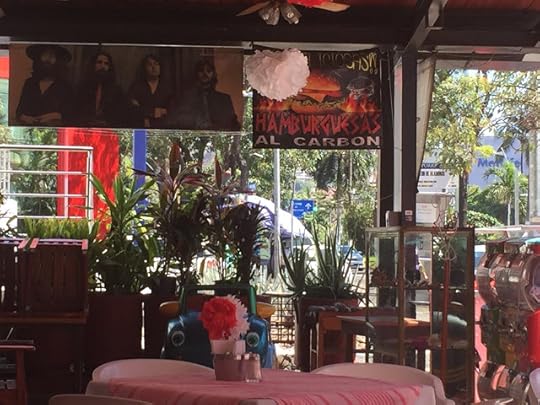

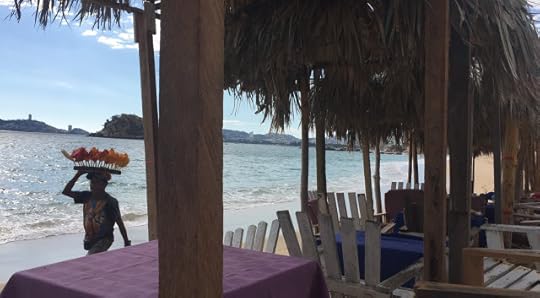
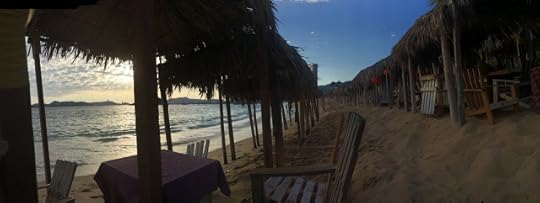
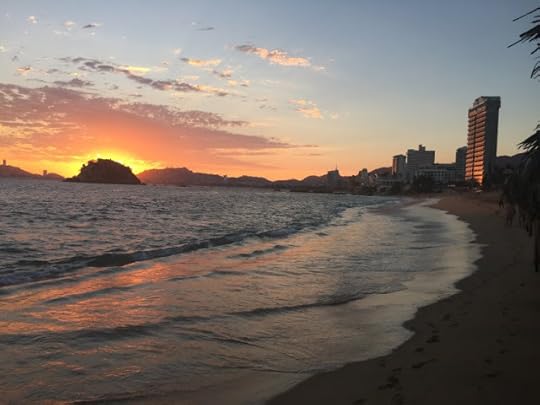

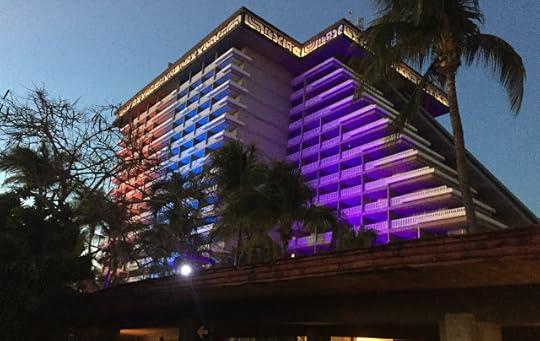
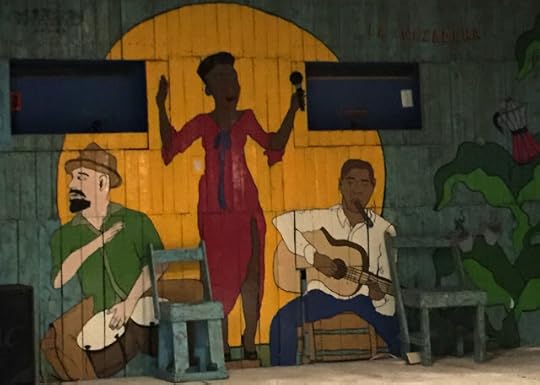

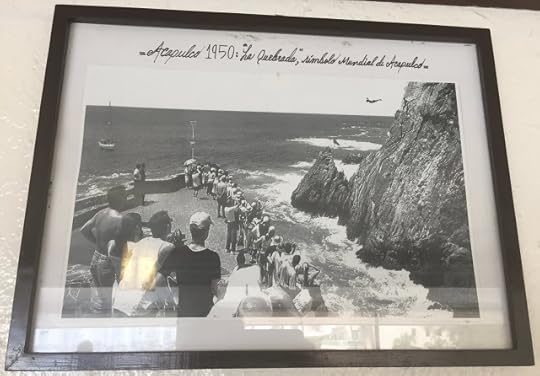
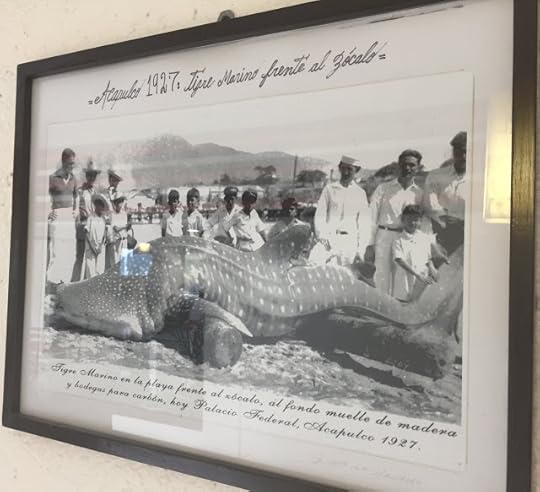

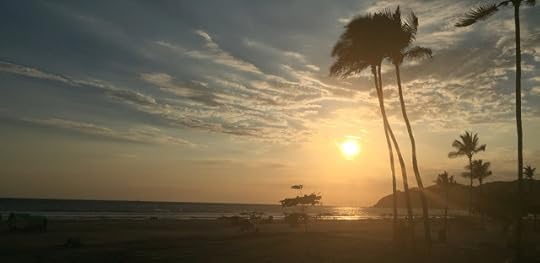

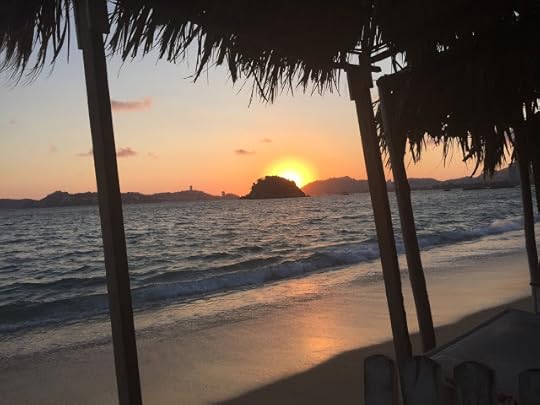
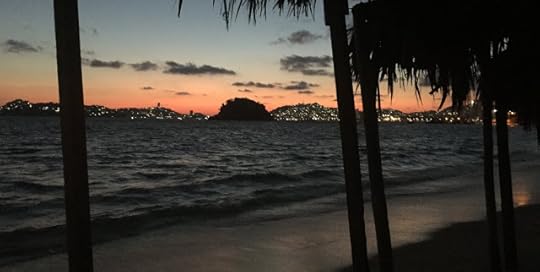
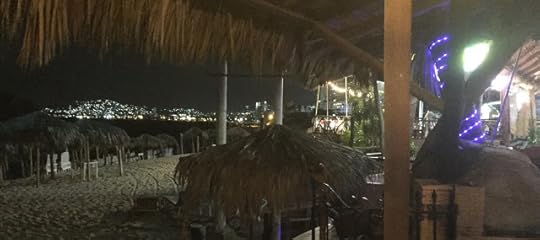
Flying into Panama City --
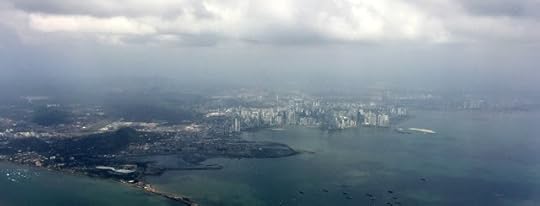
Flying back to Ecuador --
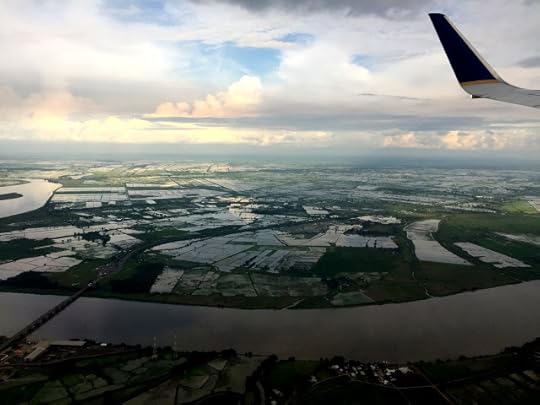
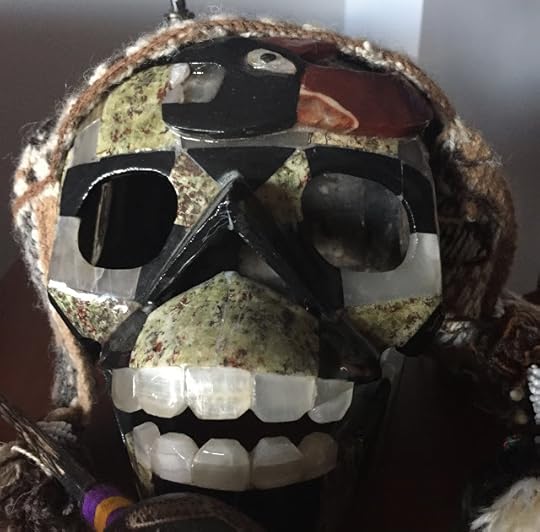
Published on May 04, 2018 14:55
March 28, 2018
Garra Charrua!If you're lucky enough to be enjoying the e...
Garra Charrua!
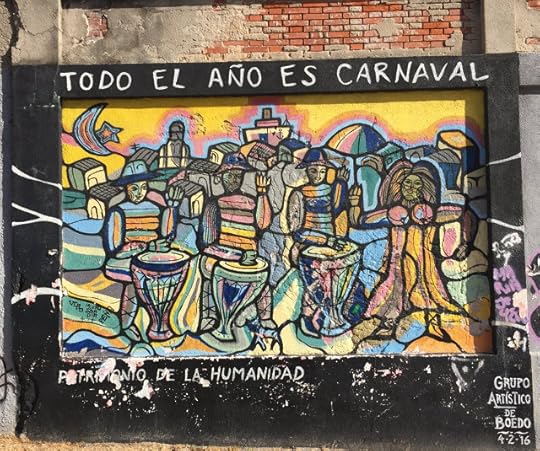
If you're lucky enough to be enjoying the energy of a Uruguayan futbol match, you might hear "Garra Charrau" chanted from the stands. A rallying call to the players, it's also a tribute to the indigenous people of the area, the Charruas, who refused to convert to Catholicism and defeated the Spanish invaders. The chant calls upon one to "prevail in the face of certain death."
There is a spirit, an energy, a passion to enjoy life, as well as a fierce determination to be free and expressive not only in that futbol chant, but in the daily life of the Uruguayan people as well. As former President Jose Mujica, a man who took office in March 2010 but never moved into Uruguay's presidential palace and was once referred to as the poorest, most humble leader in the world, once said -- "Be yourself and don't try to impose your criteria on the rest. I don't expect others to live like me. I want to respect people's freedom, but I defend my freedom. And that comes with the courage to say what you think, even if sometimes others don't share those views."
From the south where the extra-wide waters of the Rio de la Plata hide a bustling Buenos Aires lighting up the sky, to the northern border shared with a massive neighbor Brazil, Uruguay prides itself on its independence. It may be the second smallest country in South American but it's strong in so much nonetheless. A representative democratic republic, it's had an economic growing streak for the last 15 years. From 2003 to 2015, the middle class grew from 39% to 71%. Its per person income is now the highest in Latin America. It sells more beef than its larger neighbor Argentina. Without using government money, it converted to renewable electricity sources and now 95% of its energy comes from hydroelectric and wind parks. It was the first country to legalize the production, sale, and consumption of cannabis. Same-sex marriage and abortion is also legal. Long ago, a woman's right to divorce by simply appealing to do so at the courts was established. Church and state have been formally separated since 1916.
Whether sipping mate from a traditional calabash gourd in a park in Montevideo, jogging along the seemingly endless Rambla, or enjoying the sun and surf at Punta del Este, it's likely a native is looking forward to the next carnival celebration. Life's always a heady mixture of work and play, love and basic joys from the surprises and mundane cares of everyday life. As the locals say, "Es lo que hay!" While literally this translates as "it is what it is," this is more often said as a positive affirmation, to remember that nothing is better than what you already have. My days in country gave me so much more than what I had before I arrived, as the following photos demonstrate so well.
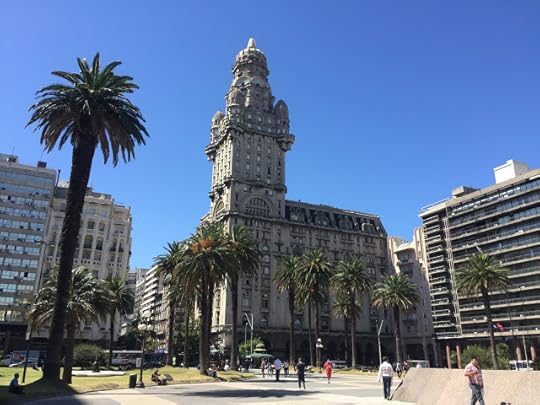
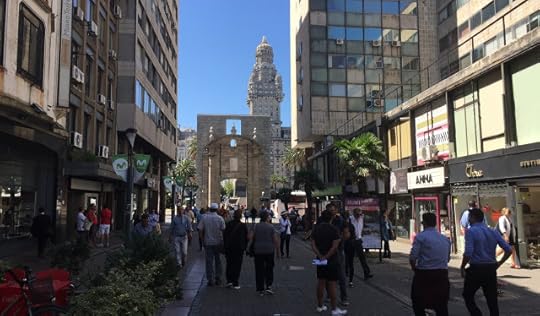
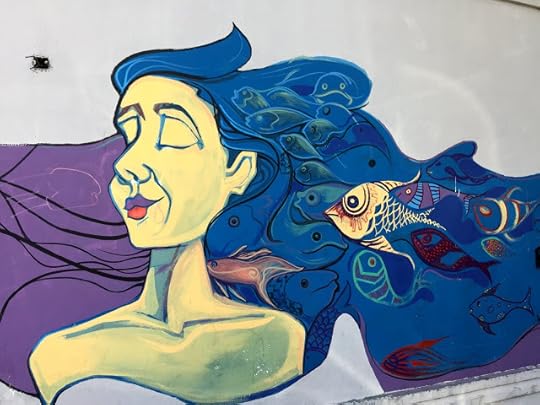

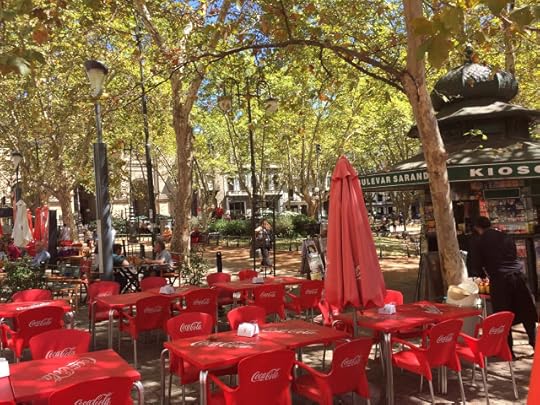
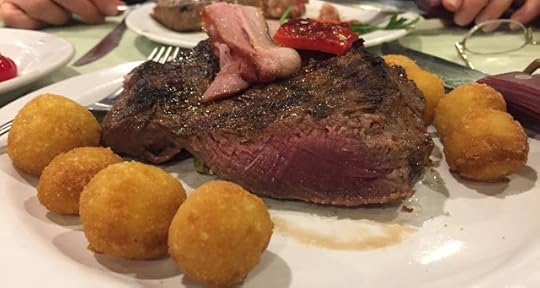
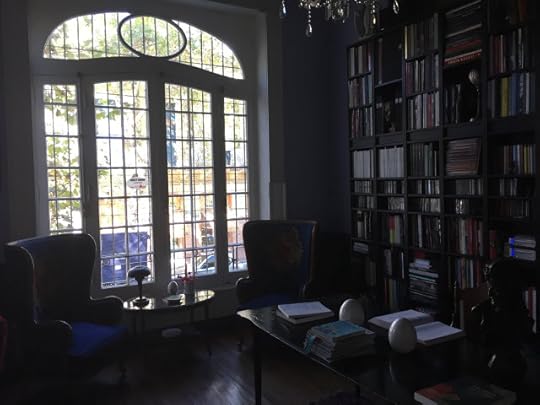
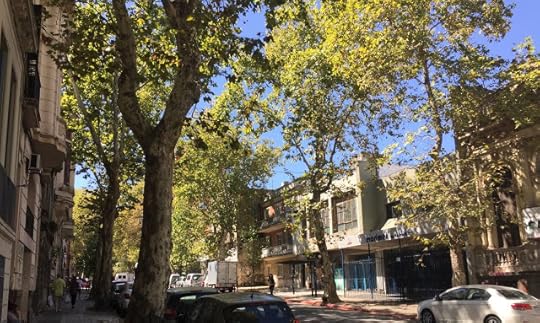

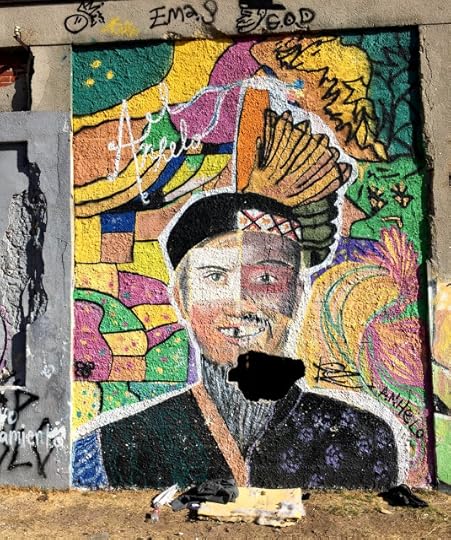
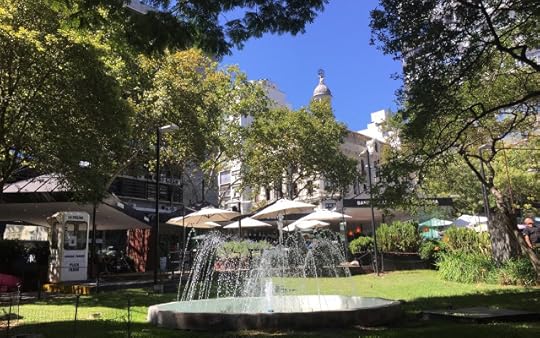
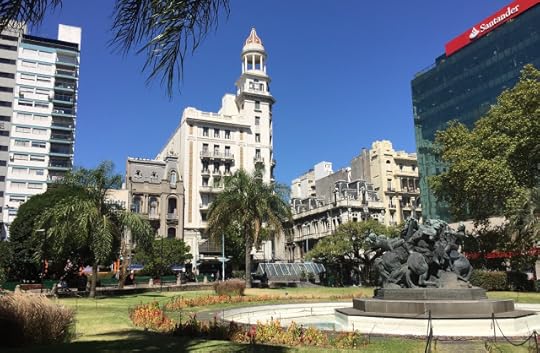
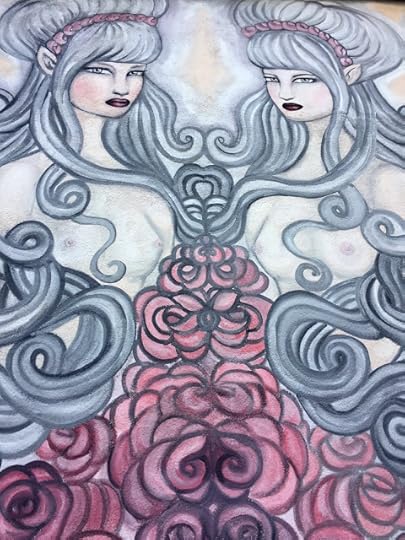
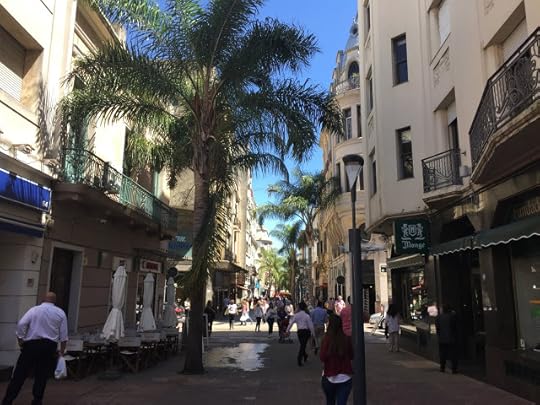
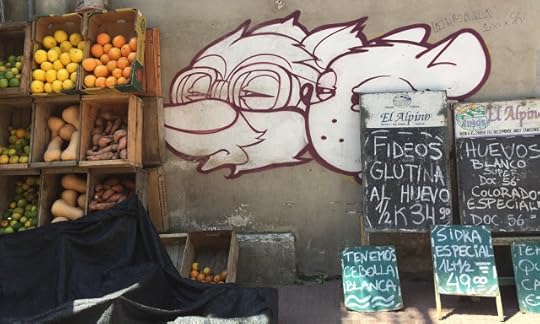
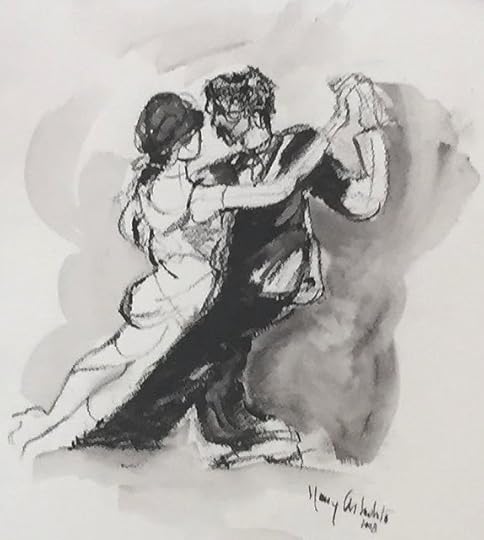

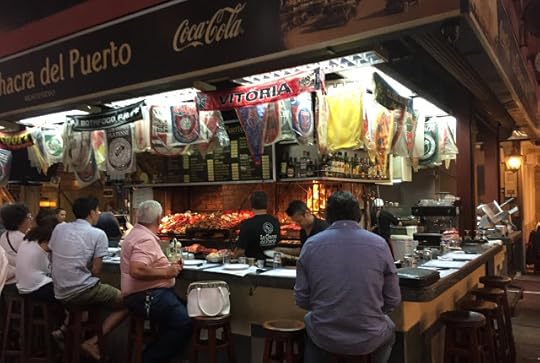
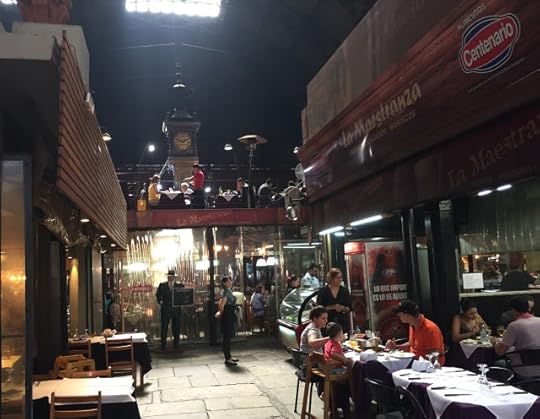
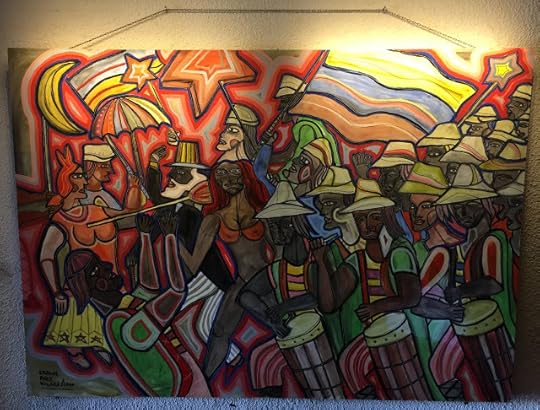
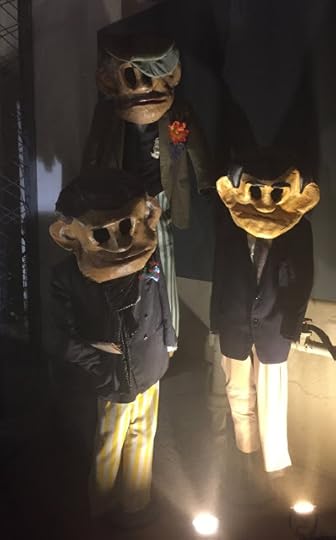
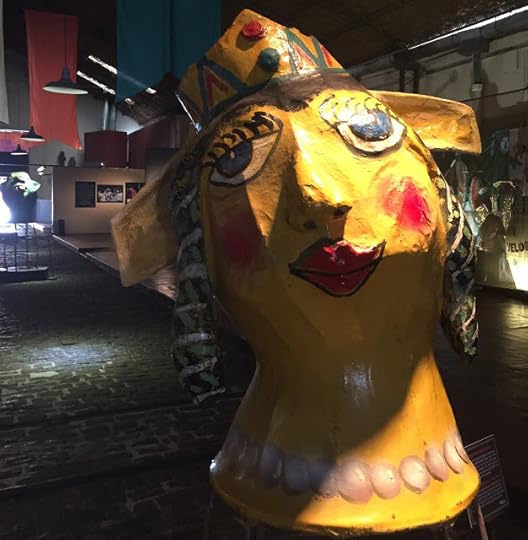
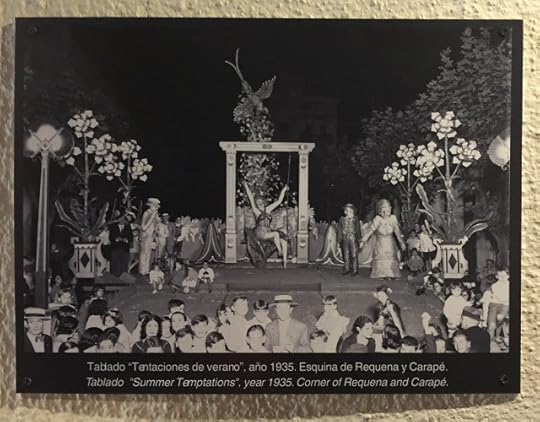
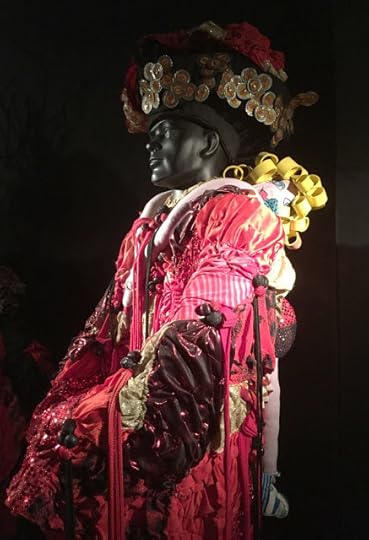
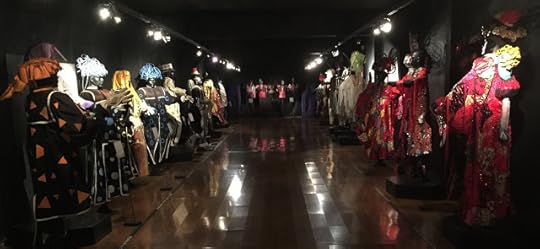
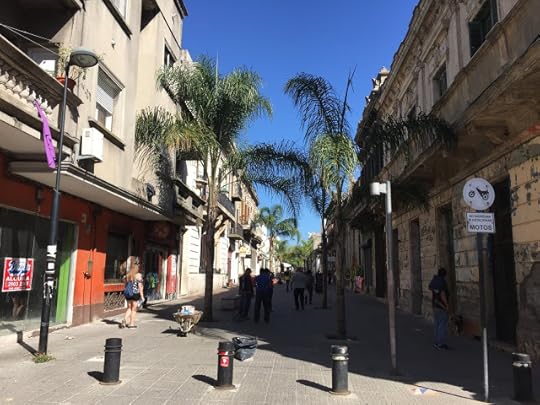
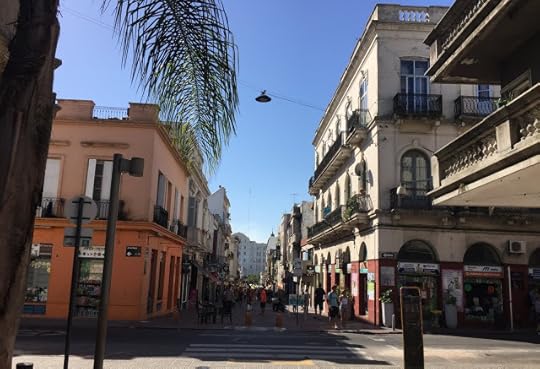
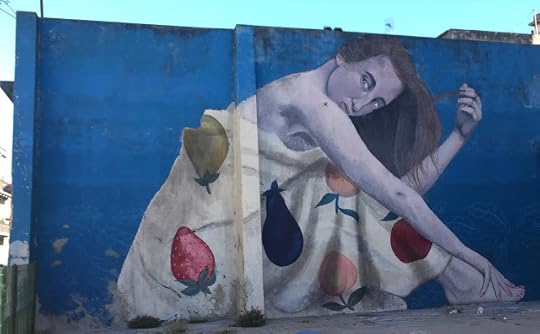
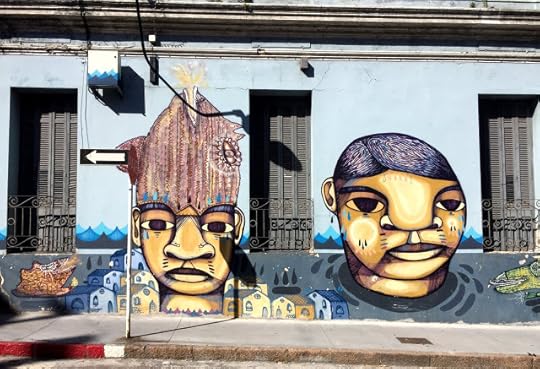
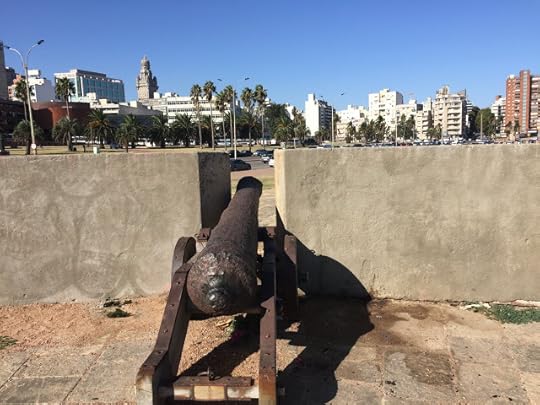

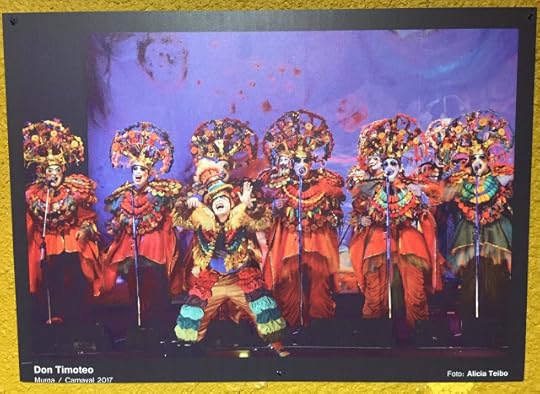

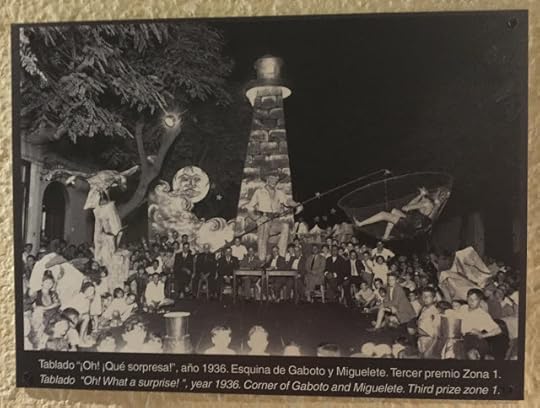
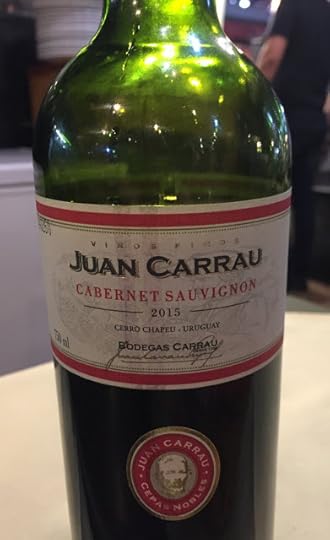
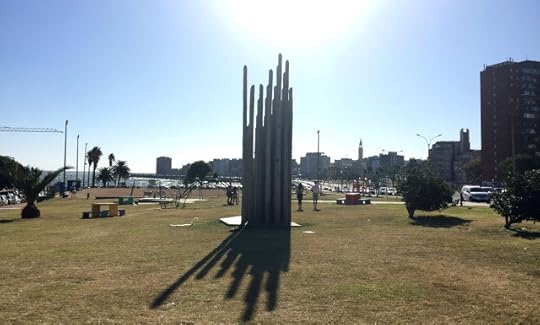
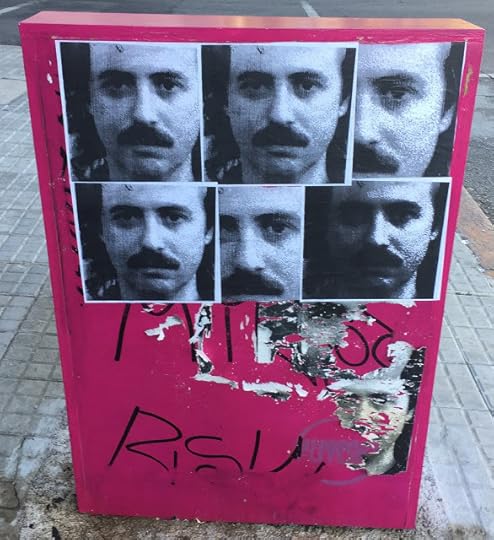
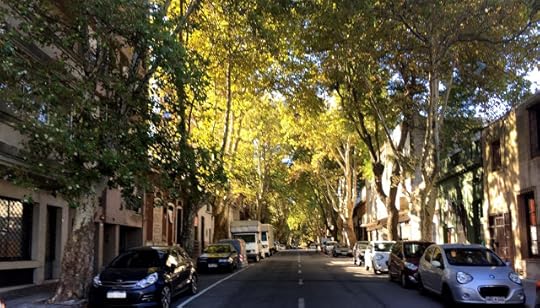
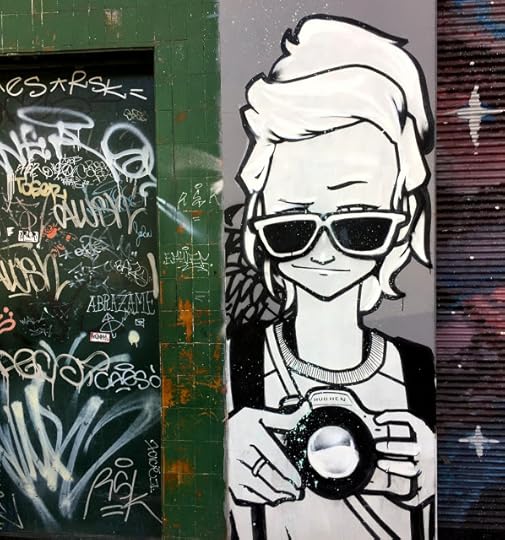
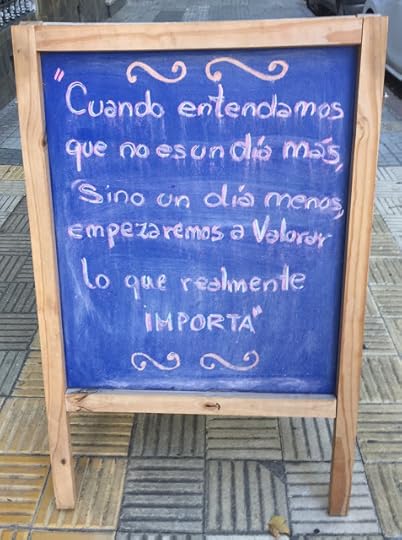
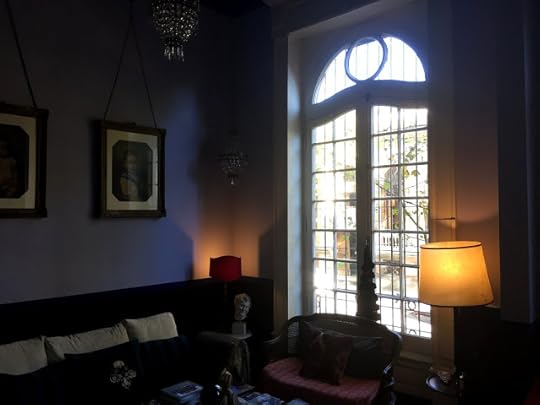
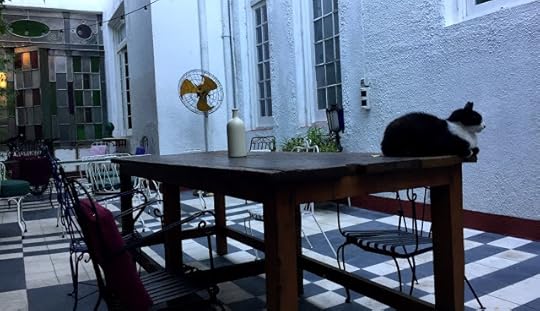
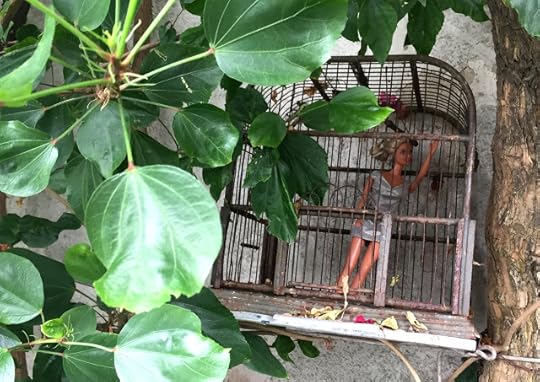
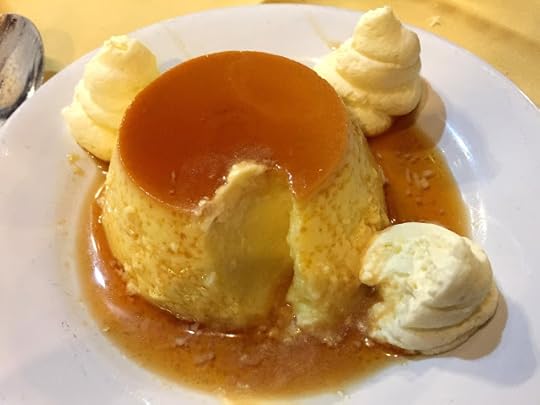
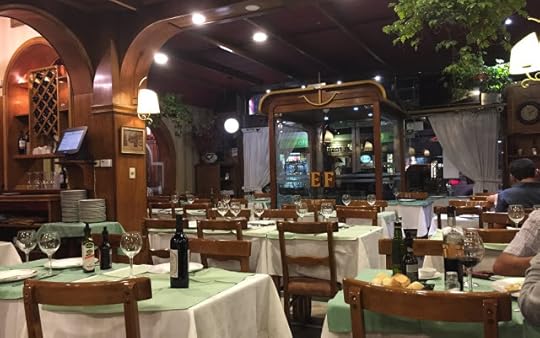
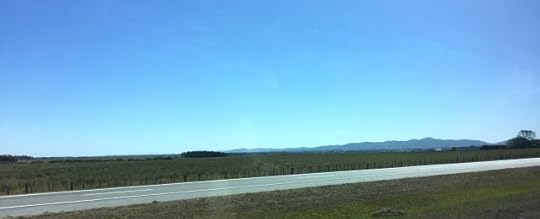

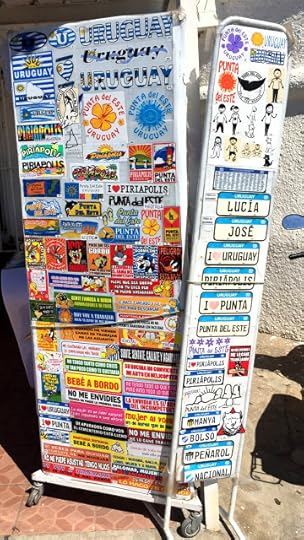
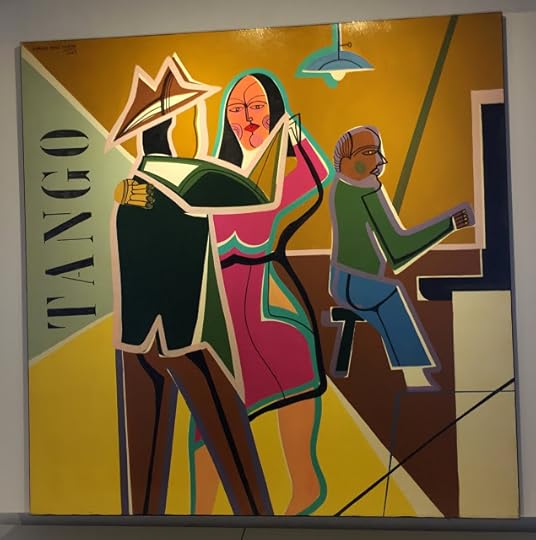
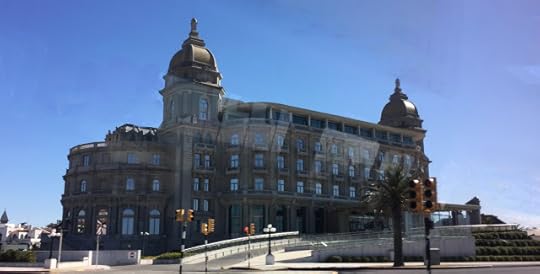

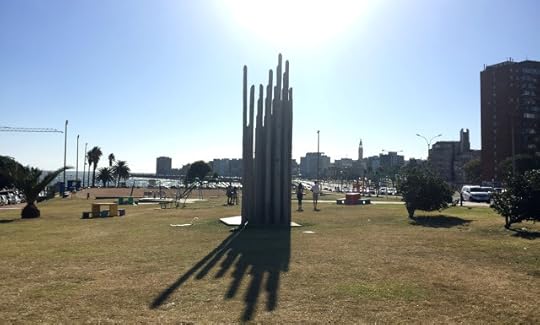

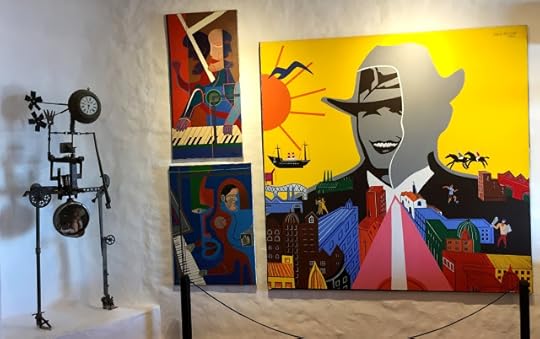
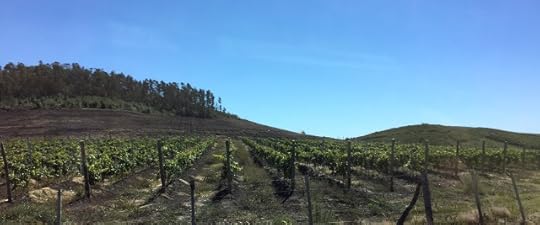
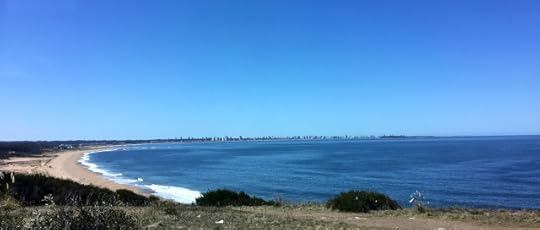

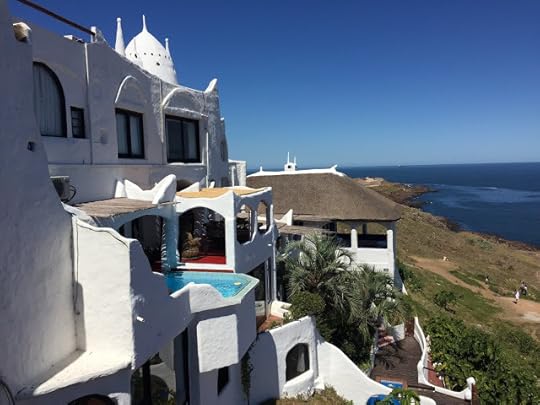
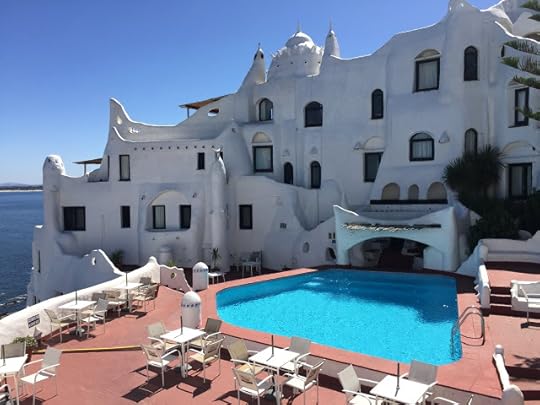

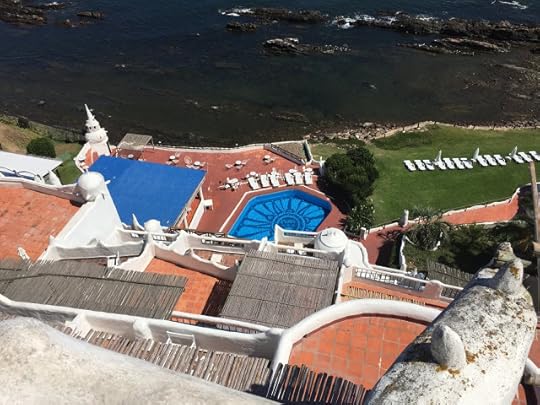
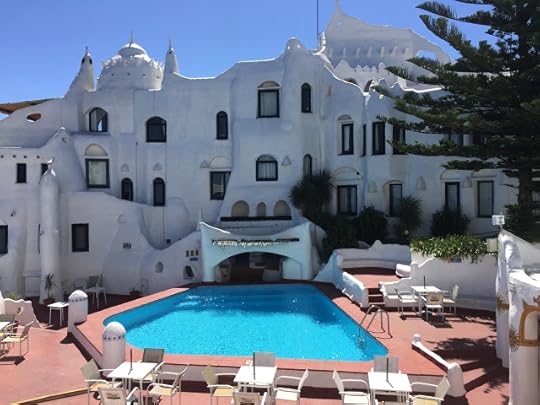
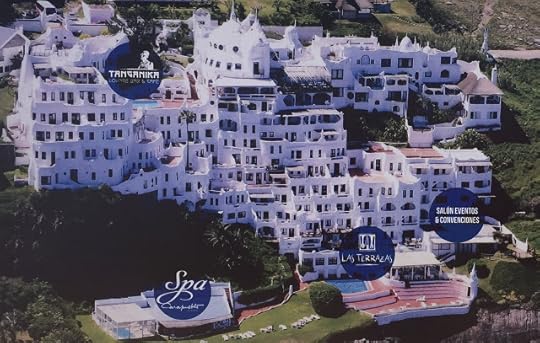

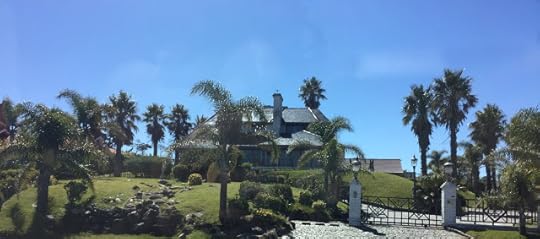
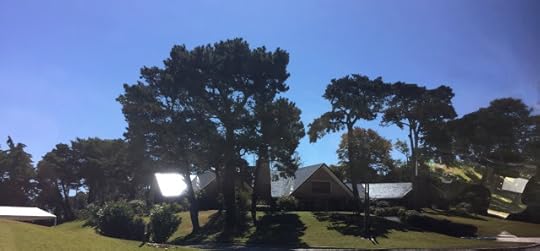
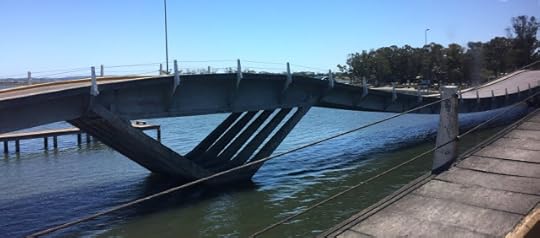
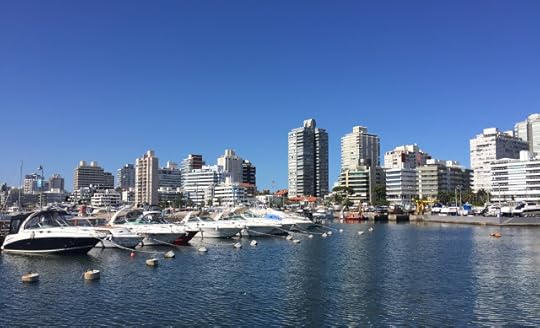

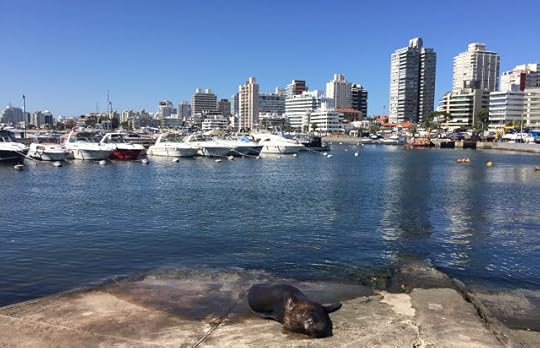
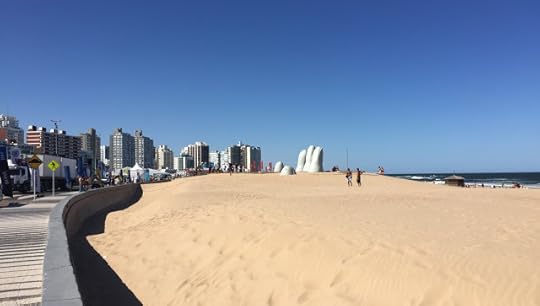

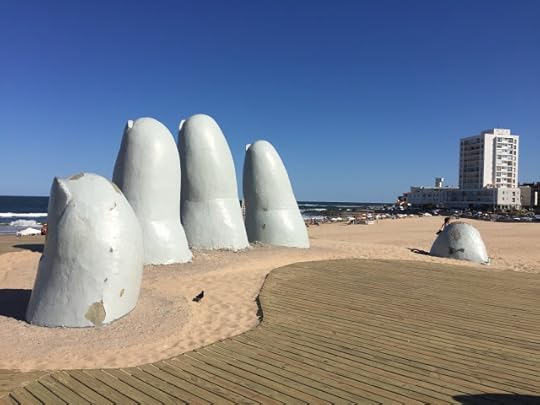
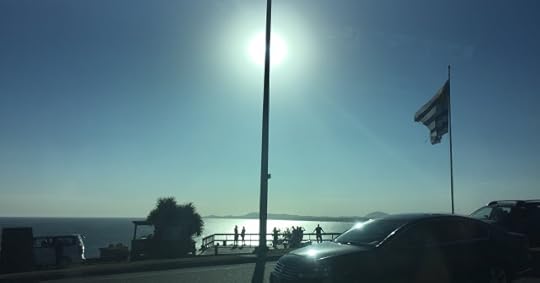
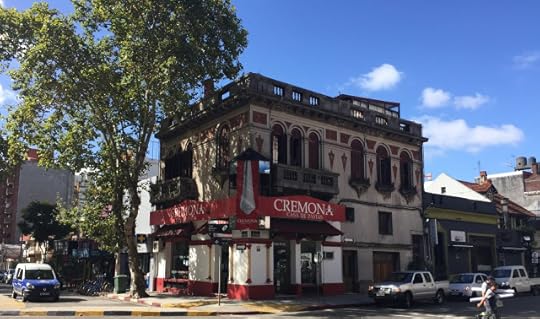
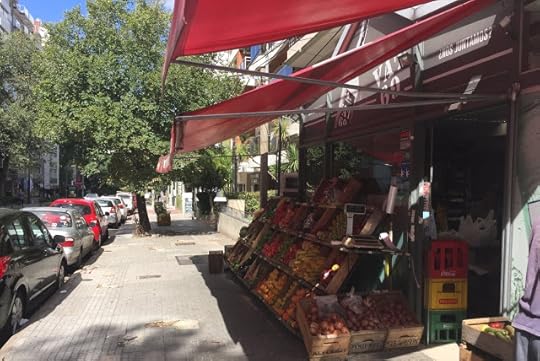

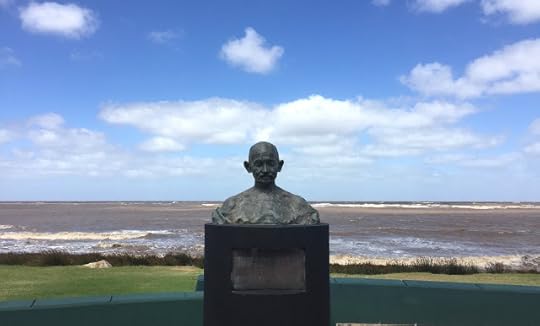

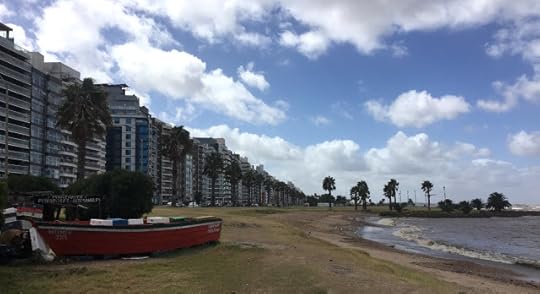
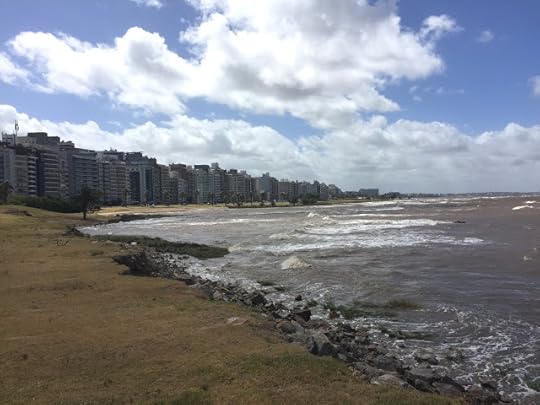

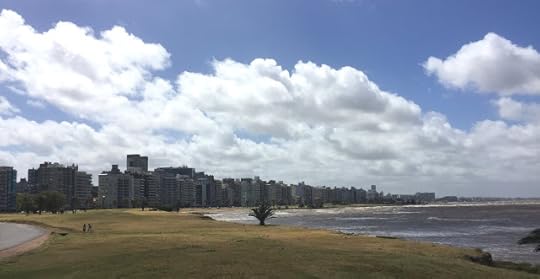

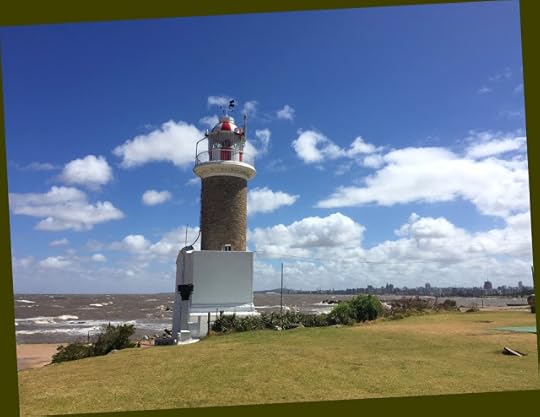
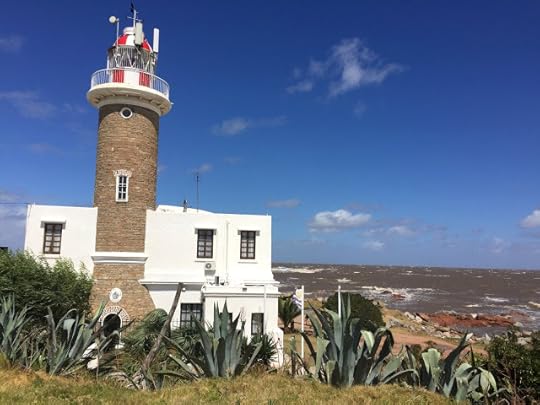

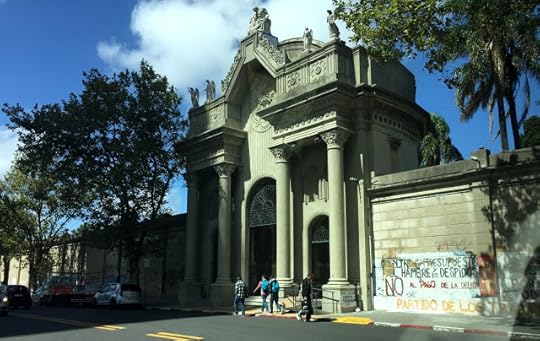
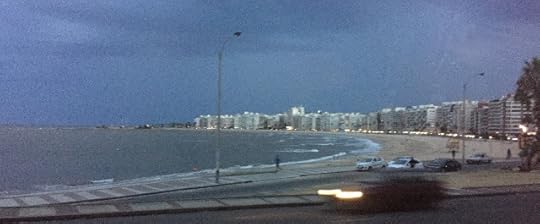
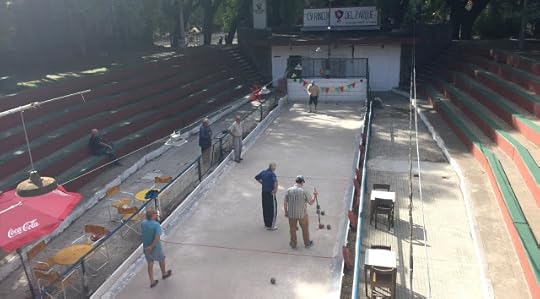
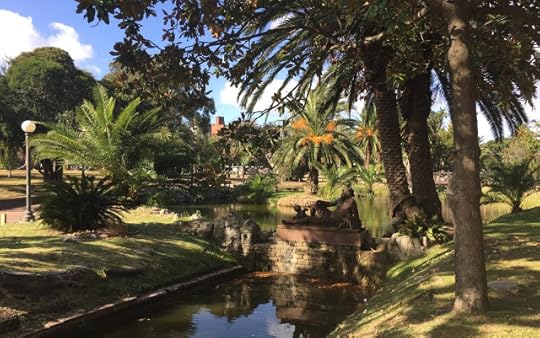

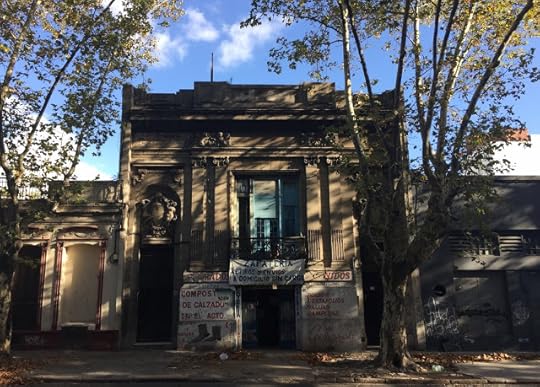
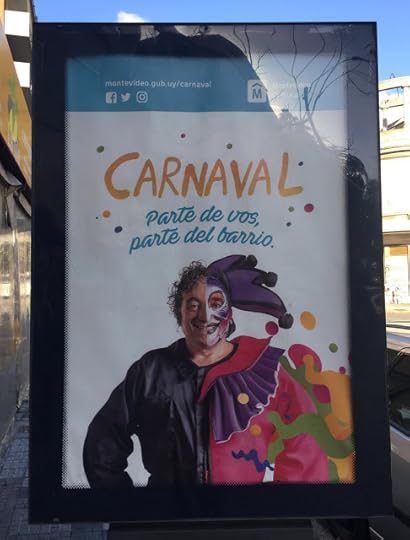
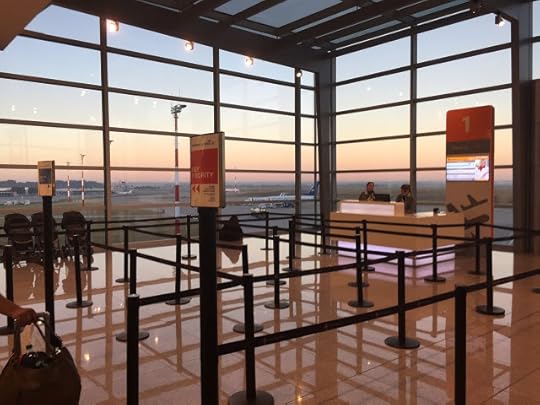

If you're lucky enough to be enjoying the energy of a Uruguayan futbol match, you might hear "Garra Charrau" chanted from the stands. A rallying call to the players, it's also a tribute to the indigenous people of the area, the Charruas, who refused to convert to Catholicism and defeated the Spanish invaders. The chant calls upon one to "prevail in the face of certain death."
There is a spirit, an energy, a passion to enjoy life, as well as a fierce determination to be free and expressive not only in that futbol chant, but in the daily life of the Uruguayan people as well. As former President Jose Mujica, a man who took office in March 2010 but never moved into Uruguay's presidential palace and was once referred to as the poorest, most humble leader in the world, once said -- "Be yourself and don't try to impose your criteria on the rest. I don't expect others to live like me. I want to respect people's freedom, but I defend my freedom. And that comes with the courage to say what you think, even if sometimes others don't share those views."
From the south where the extra-wide waters of the Rio de la Plata hide a bustling Buenos Aires lighting up the sky, to the northern border shared with a massive neighbor Brazil, Uruguay prides itself on its independence. It may be the second smallest country in South American but it's strong in so much nonetheless. A representative democratic republic, it's had an economic growing streak for the last 15 years. From 2003 to 2015, the middle class grew from 39% to 71%. Its per person income is now the highest in Latin America. It sells more beef than its larger neighbor Argentina. Without using government money, it converted to renewable electricity sources and now 95% of its energy comes from hydroelectric and wind parks. It was the first country to legalize the production, sale, and consumption of cannabis. Same-sex marriage and abortion is also legal. Long ago, a woman's right to divorce by simply appealing to do so at the courts was established. Church and state have been formally separated since 1916.
Whether sipping mate from a traditional calabash gourd in a park in Montevideo, jogging along the seemingly endless Rambla, or enjoying the sun and surf at Punta del Este, it's likely a native is looking forward to the next carnival celebration. Life's always a heady mixture of work and play, love and basic joys from the surprises and mundane cares of everyday life. As the locals say, "Es lo que hay!" While literally this translates as "it is what it is," this is more often said as a positive affirmation, to remember that nothing is better than what you already have. My days in country gave me so much more than what I had before I arrived, as the following photos demonstrate so well.































































































Published on March 28, 2018 17:14
March 27, 2018
BsAsIt is said BsAs is the way locals abbreviate Buenos A...
BsAs

It is said BsAs is the way locals abbreviate Buenos Aires, the capital of Argentina. Non-locals reduce to simply BA. Where these distinctions come from or if they actually exist as described is a topic of urban legend that all too often morphs with the person telling it. To believe standard references, even where the city's name comes from has a convoluted history involving conquistadors, stinky marshes, the Virgin Mary, Mediterranean storms, and mosquitoes carrying the "bad air" of malaria. I suspect all of this is totally clear so far.
I could tell you about Buenos Aires with content like this ---
One story says Pedro de Mendoza, a 16th century Spanish sailor, named a new port where San Telmo is now after a religious icon that supposedly helped calm a storm in the Mediterranean. That religious icon was the Virgin Mary of the fair winds or "buen ayre." Another Spanish seaman, Juan de Garay, apparently intent on coming across more devoted than his predecessor, extended the name for the new port to “Ciudad de la Santísima Trinidad y Puerto de Nuestra Señora la Virgen María de los Buenos Aires” or the “City of the Most Holy Trinity and Port of Saint Mary of the Good Airs.” Lucky for everyone, especially airport gate attendants, that name was shortened in the 17th century to Buenos Aires. The portenos or "people of the port," as it's said locals call themselves, seem to like the name fine as it is now. Far beyond icons, their devotions span a much wider array of interests and passions.
Or I could tell you about Buenos Aires another way ---
Talking about an emotional experience often times leaves something to be desired. Namely, the emotional experience. And so, instead of talking about the history and current state of Buenos Aires, I'm going to simply share some photos taken during my recent stay with the people of the port. I'm tempted to claim it's a gallery of fine art - the art of being a porteno. But that would be pretentious as much wrong, as if a single visit from a tourist could ever capture the heart and soul of a place and its people. We know neither words nor photos ever convey the whole array of life in a city. To mix metaphors, it'll never be the whole banquet. At best, it's merely a sampler tasting menu. But oh so good. For that sample I say, muchas gracias Buenos Aires.
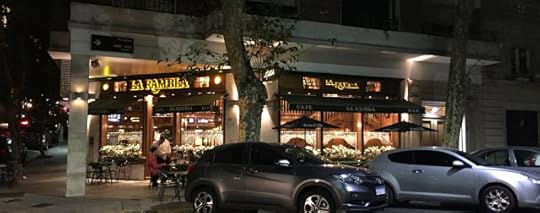


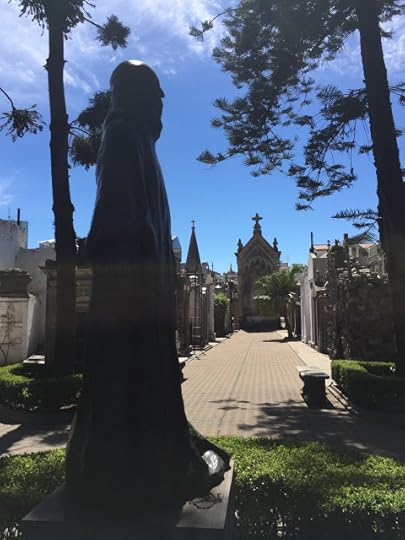
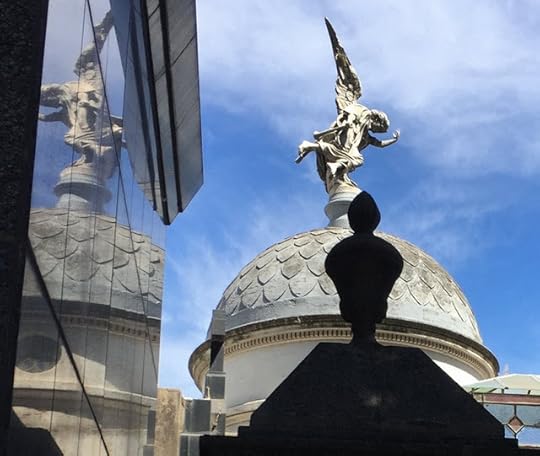
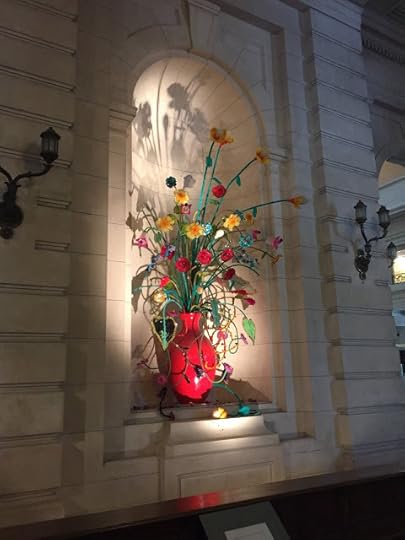
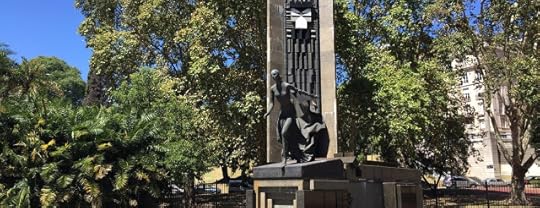
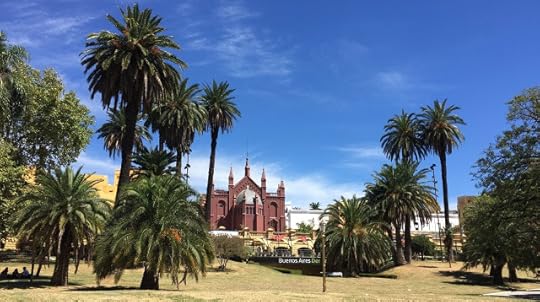

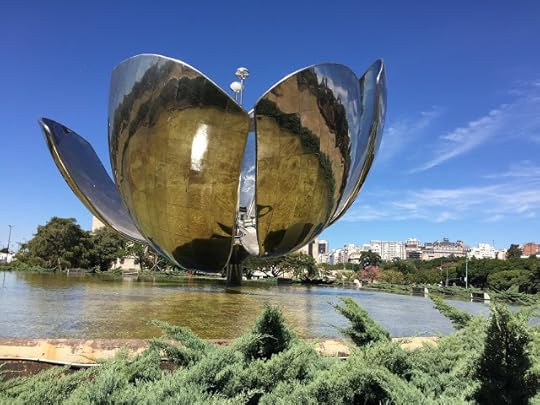

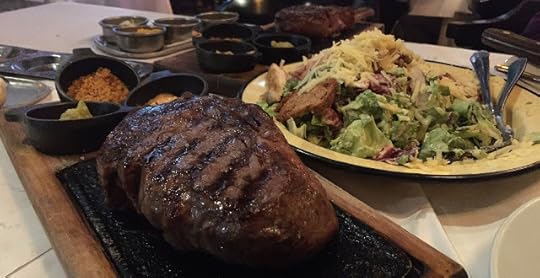
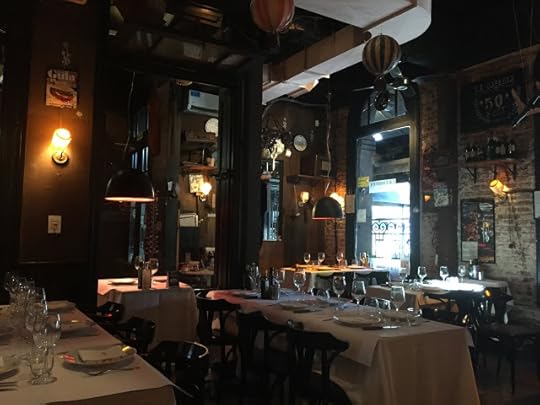
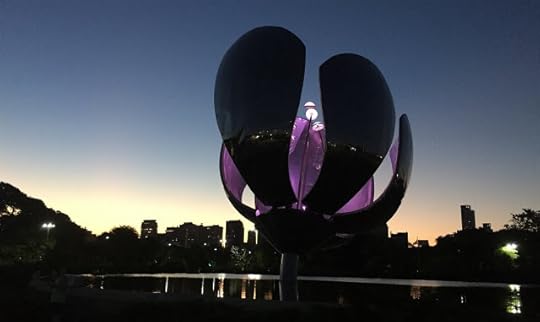
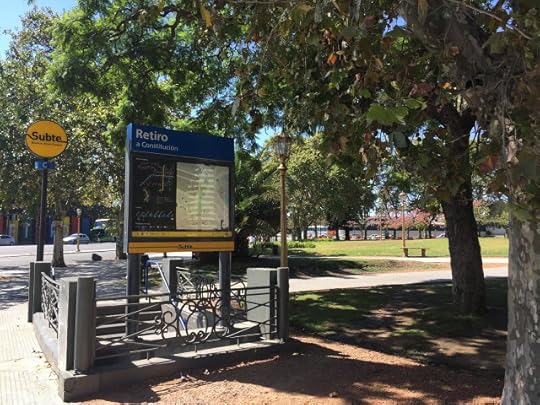
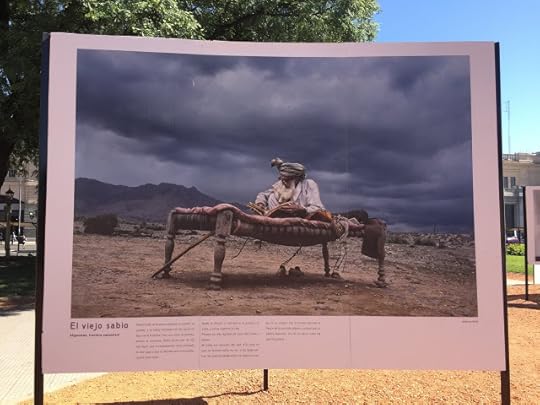
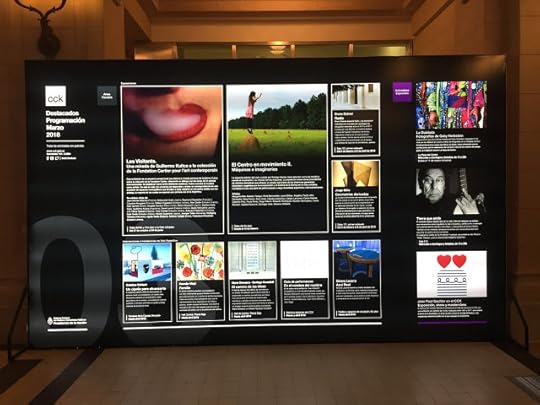
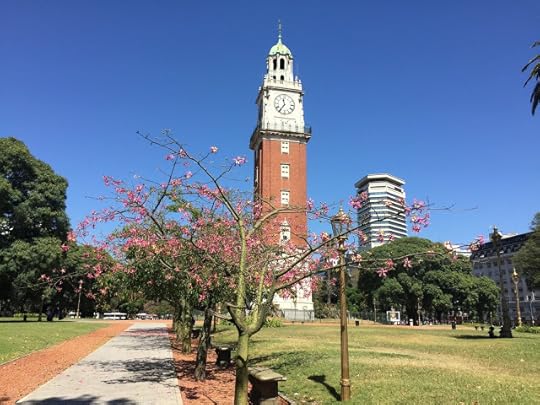
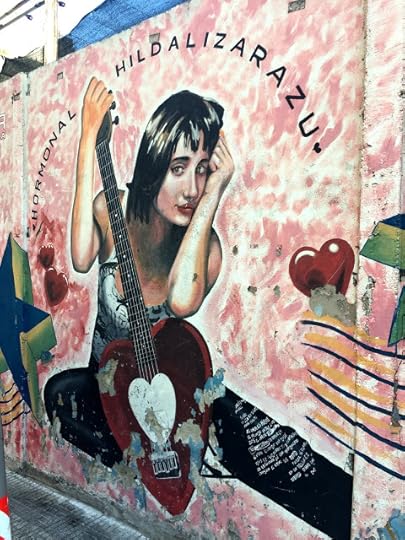
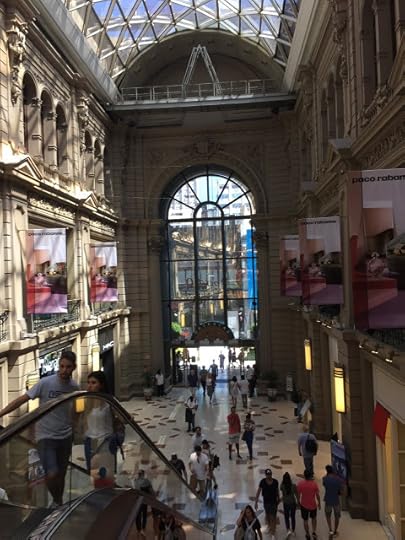
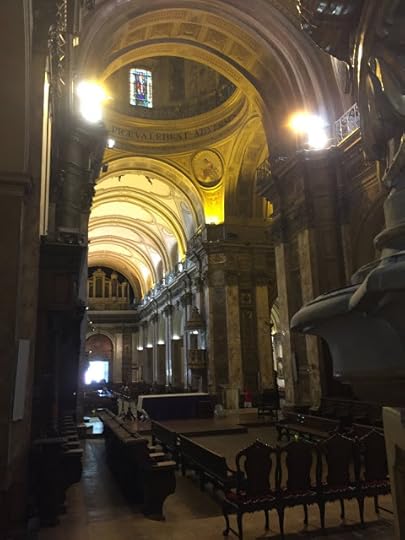
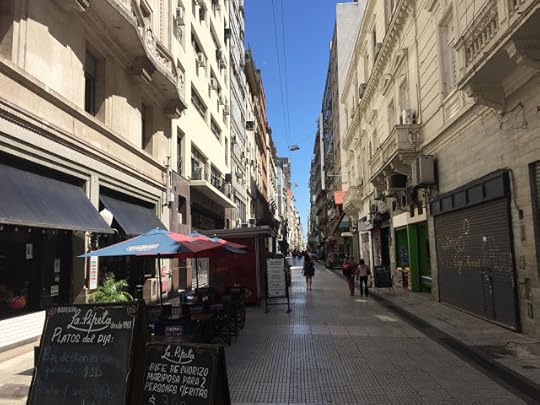
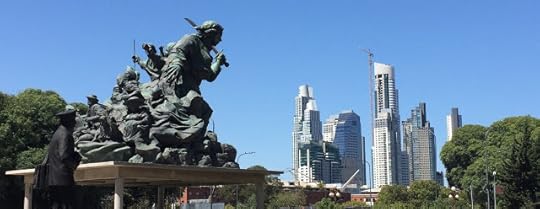
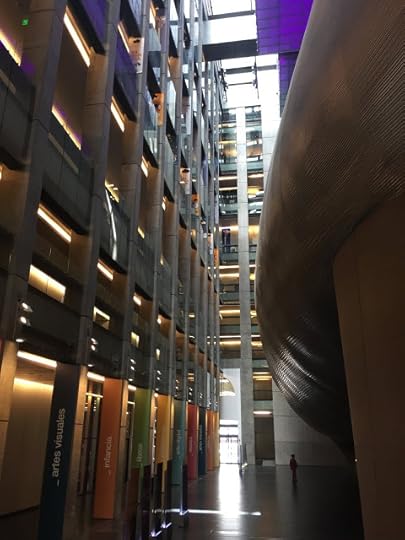
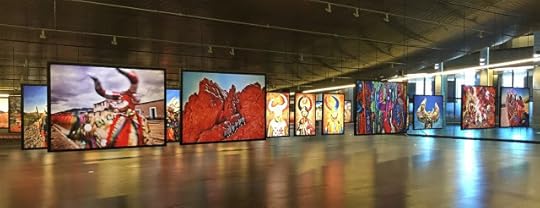
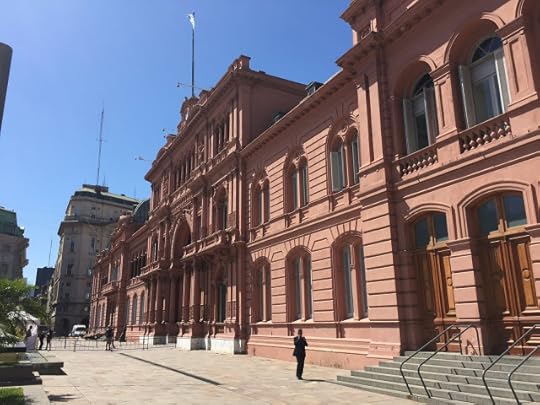
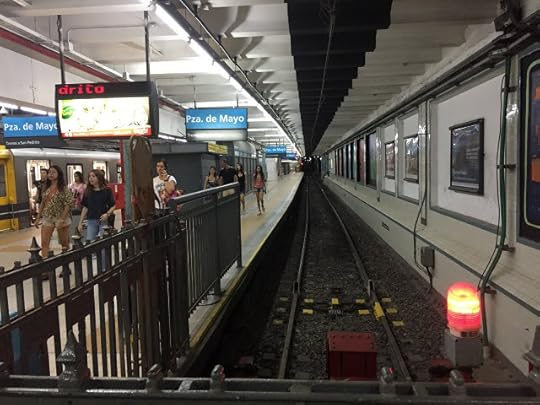
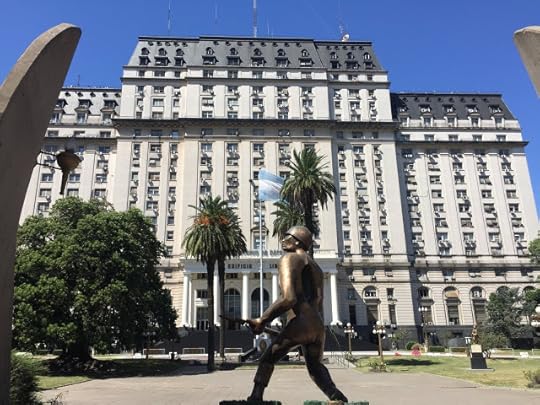
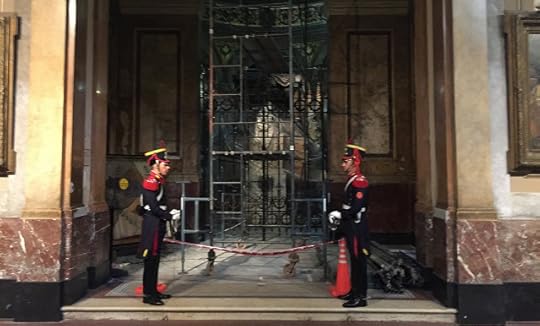
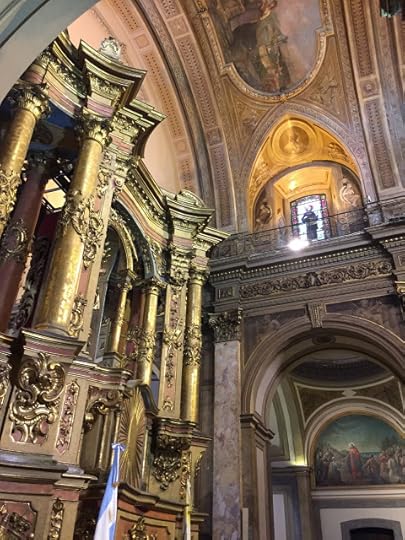
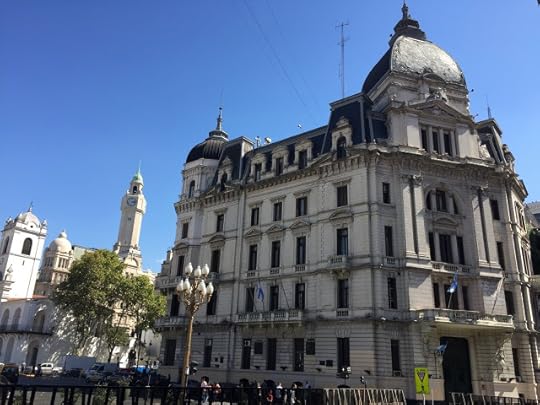
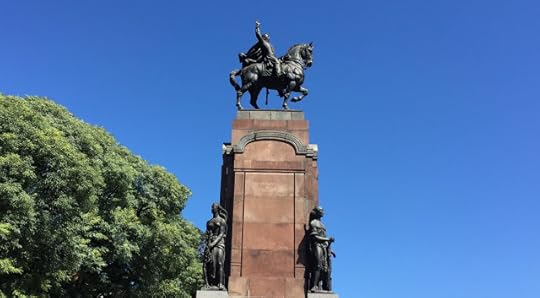
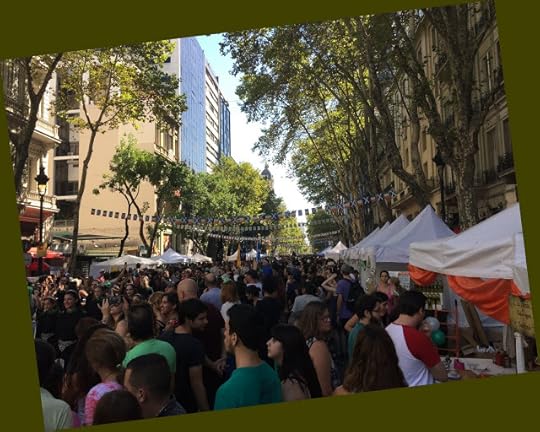

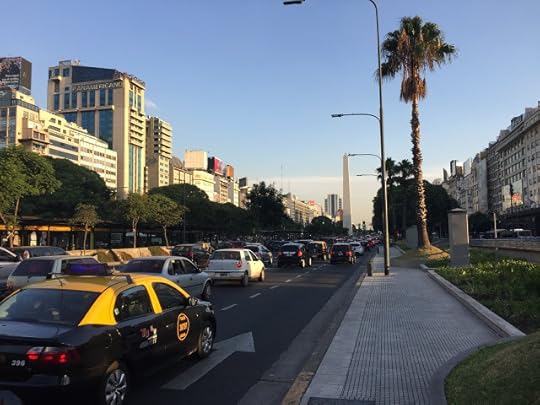

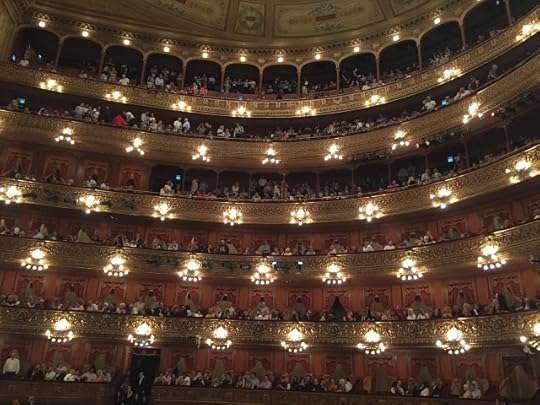
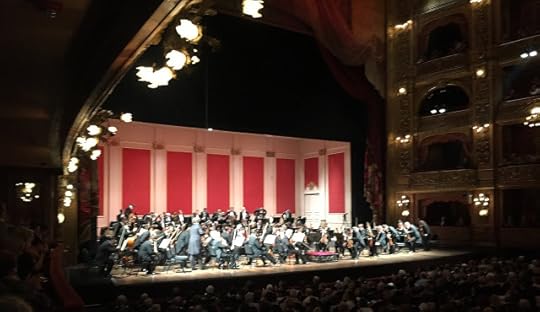
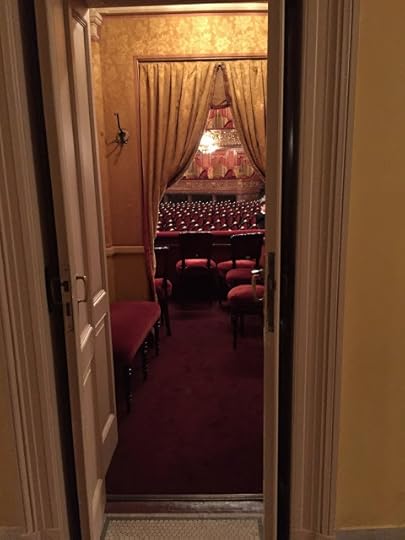
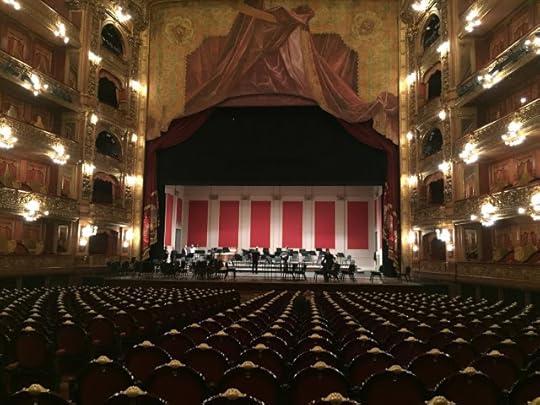
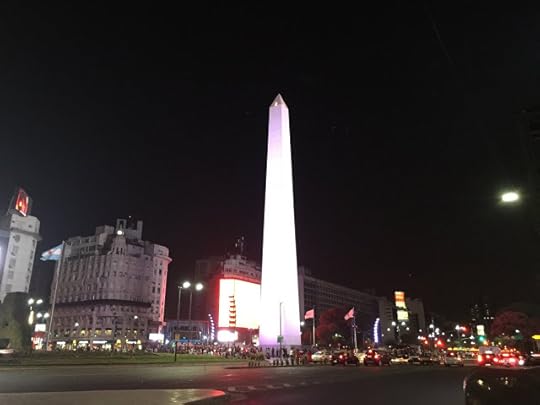
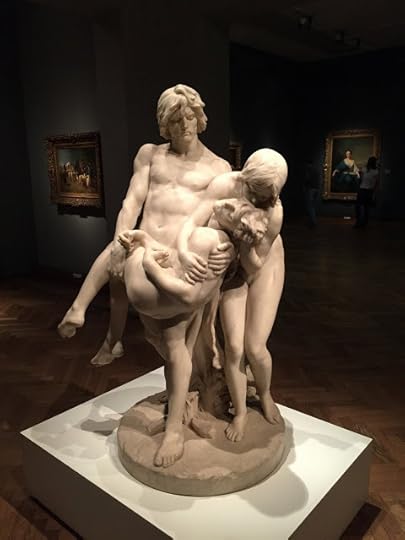
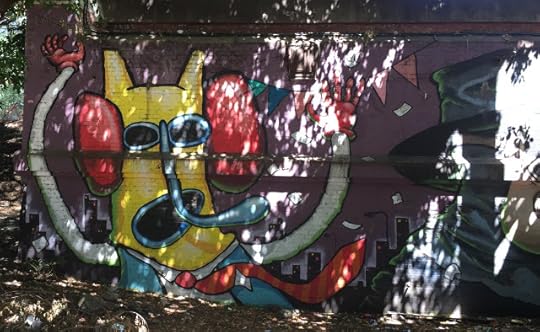
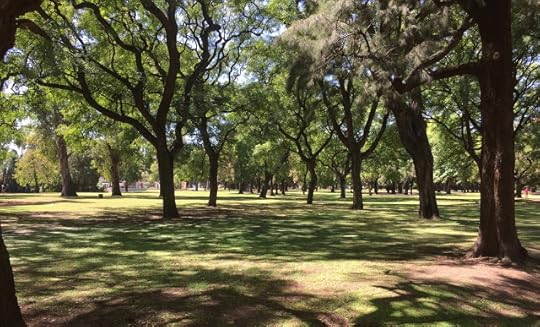
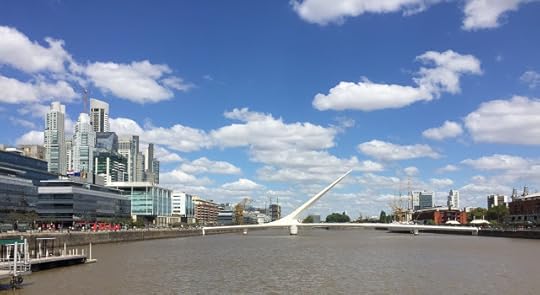
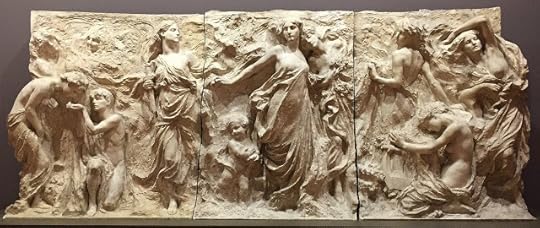
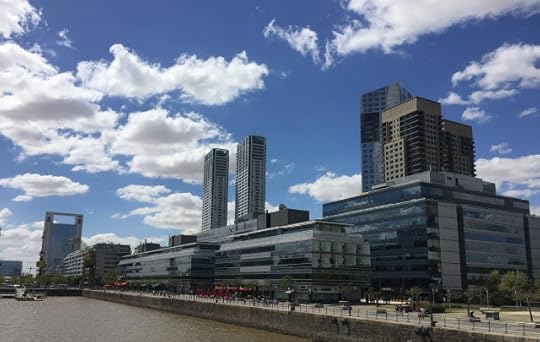
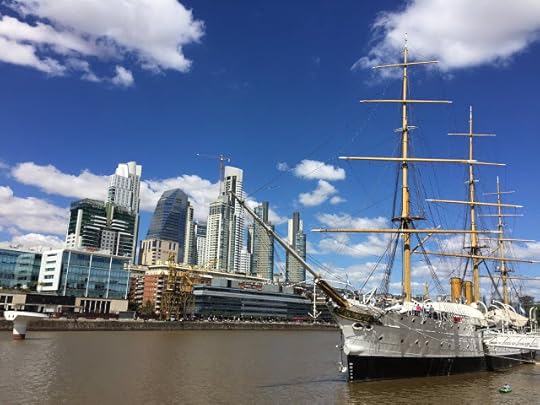
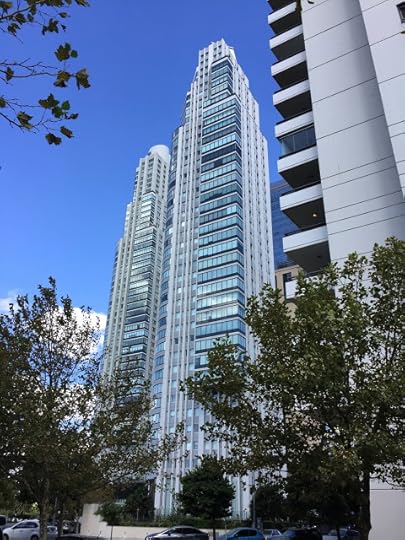
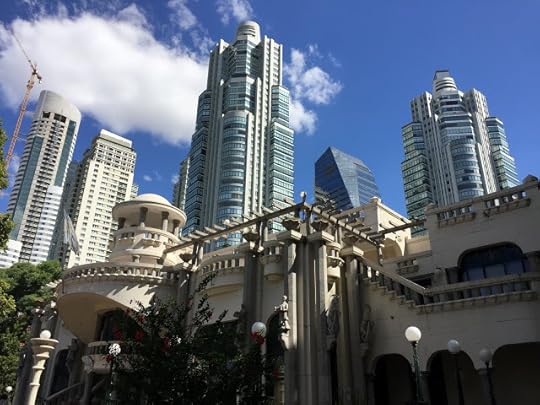
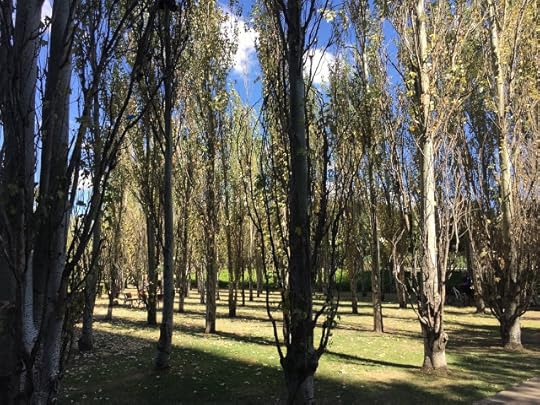
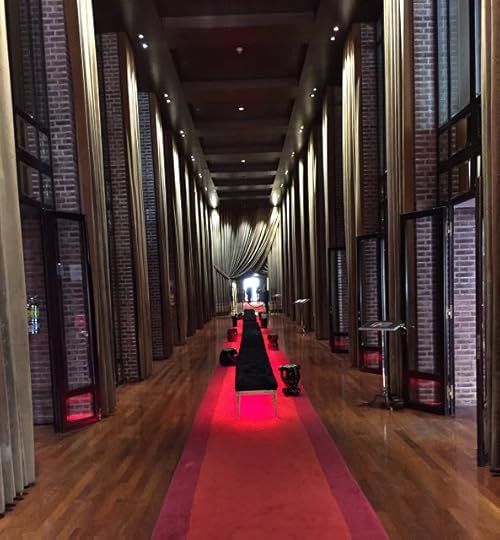
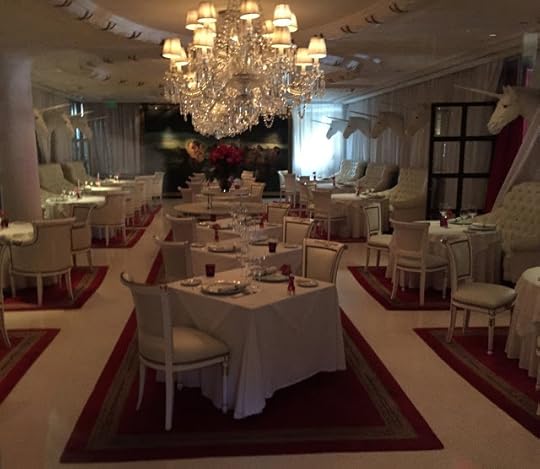
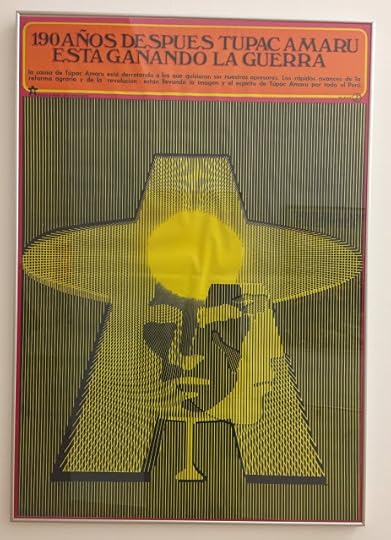
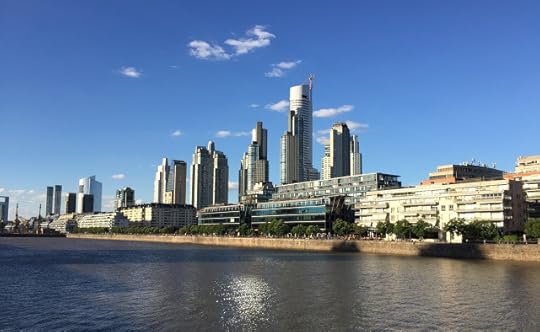


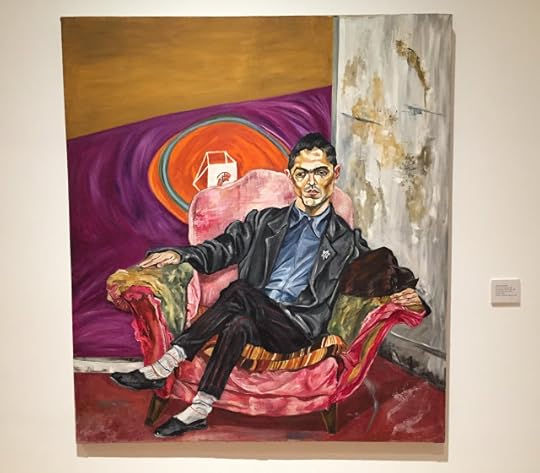
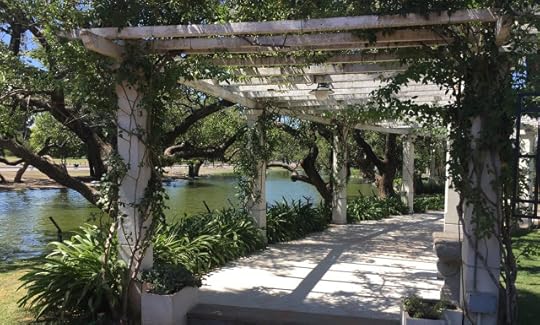
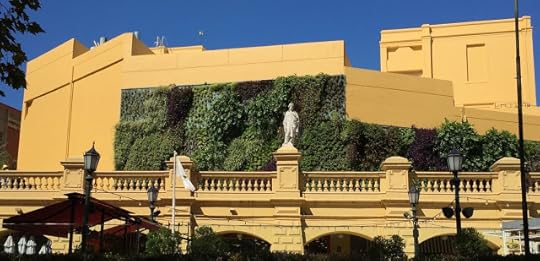
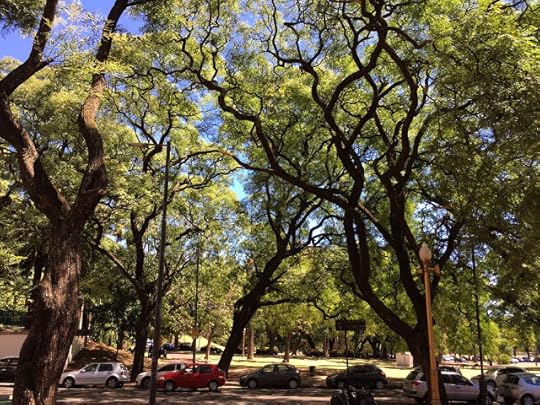
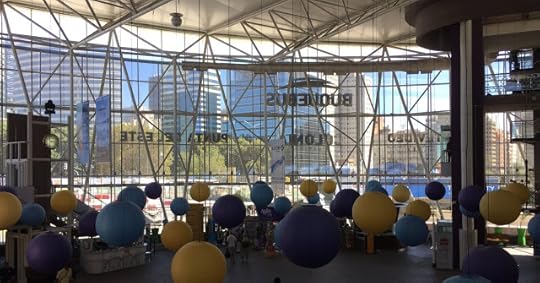
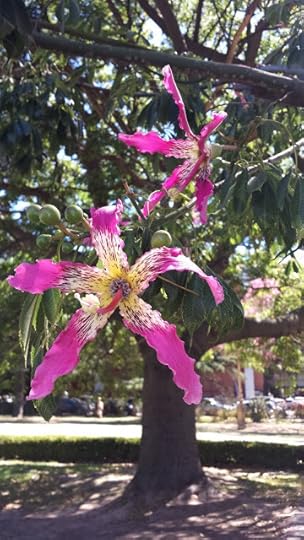
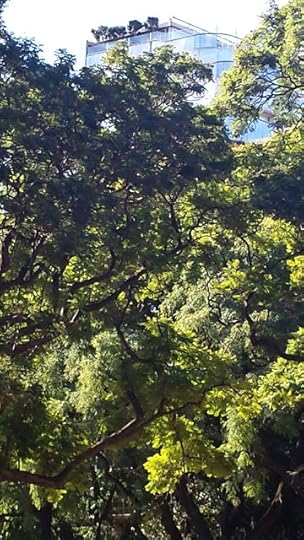
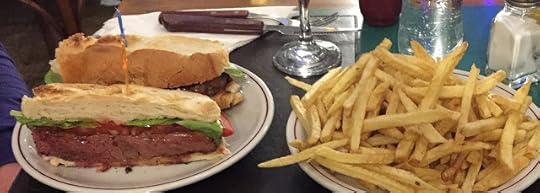
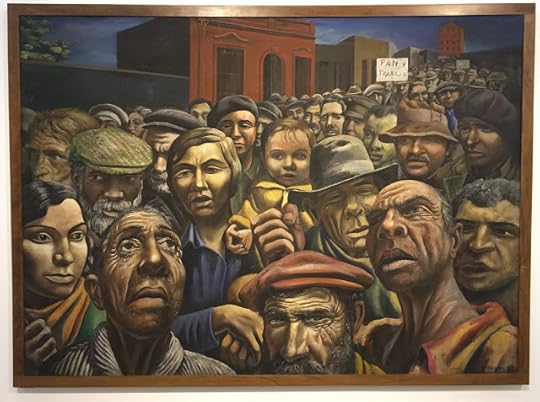
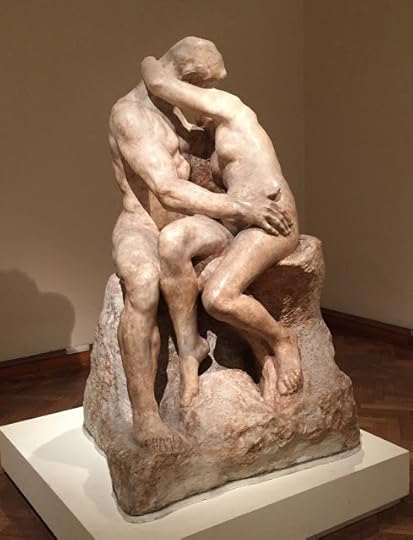

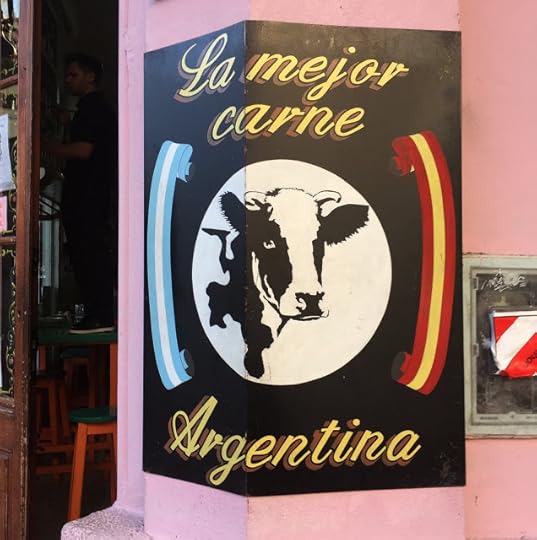
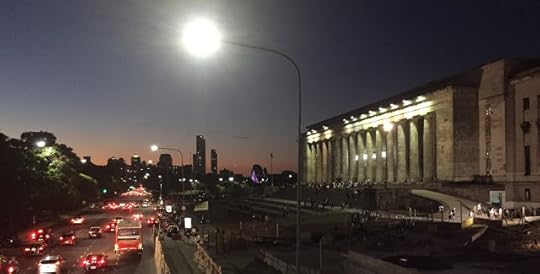
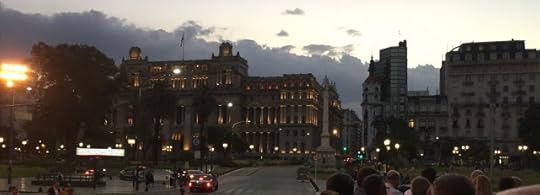
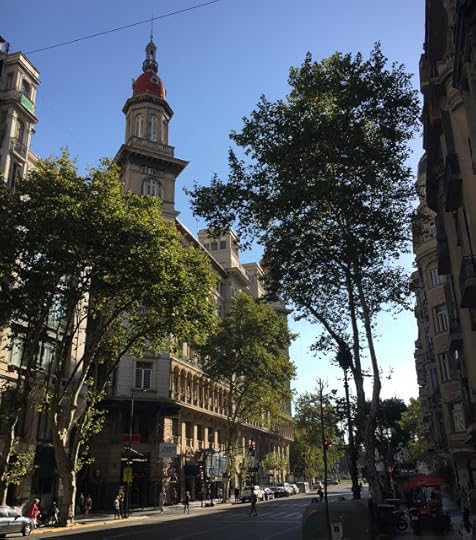
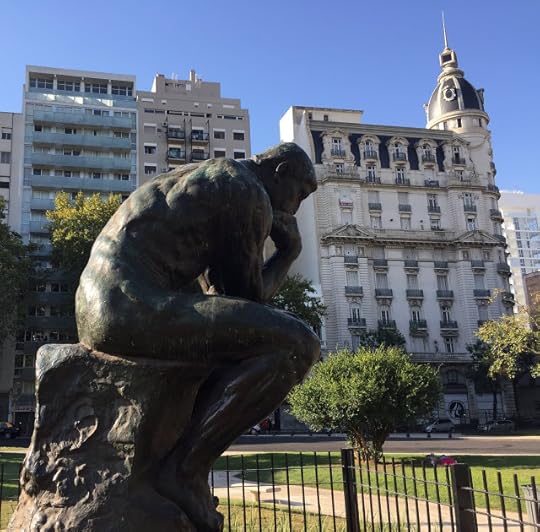
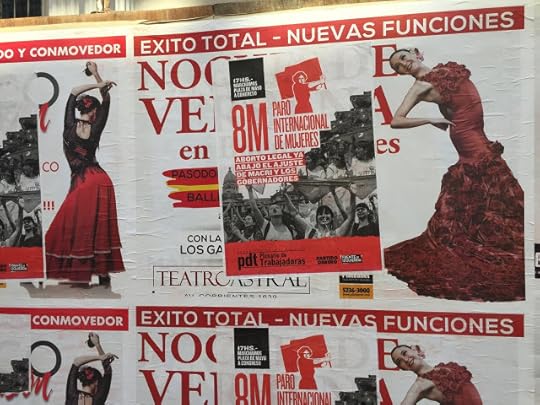
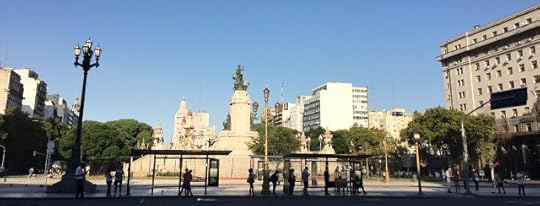
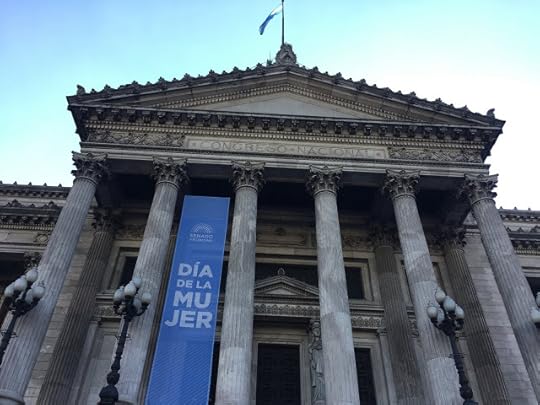
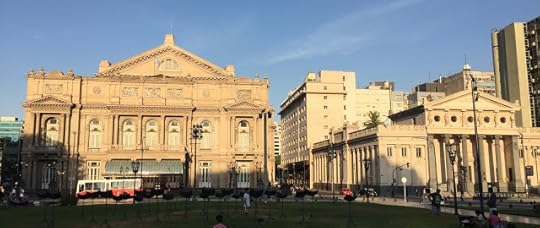

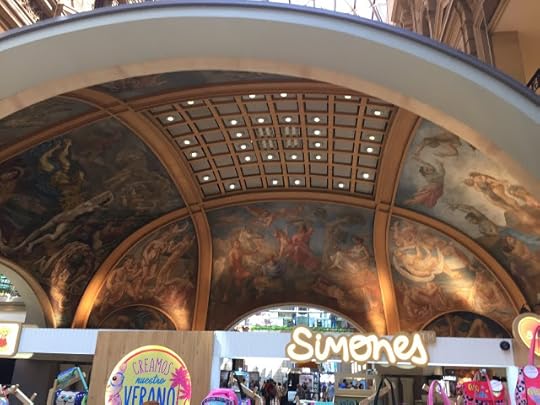
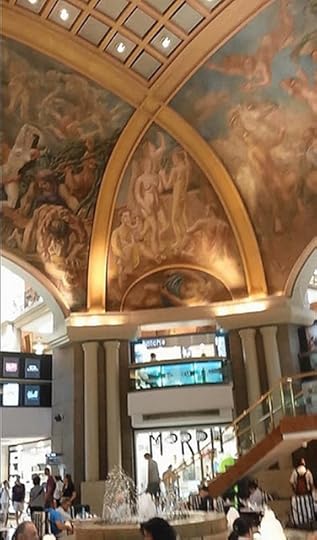
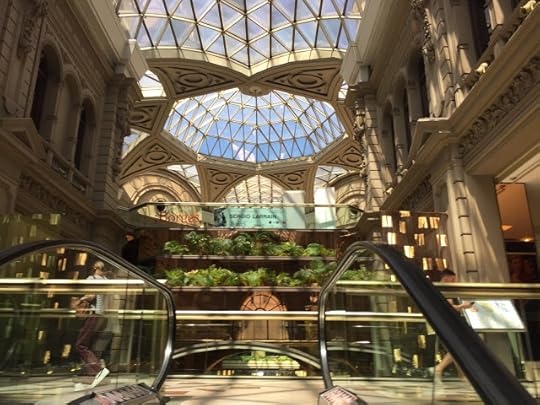
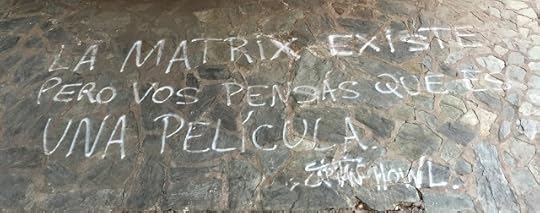
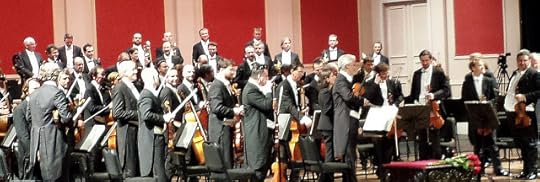
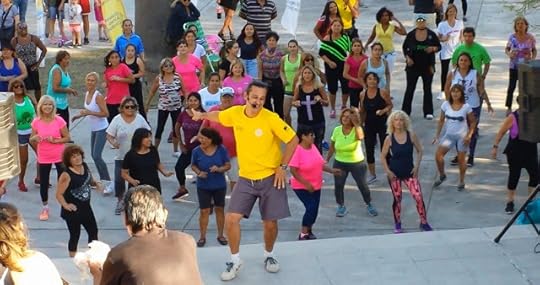
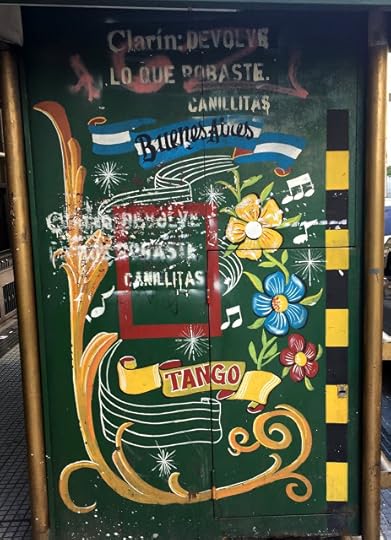

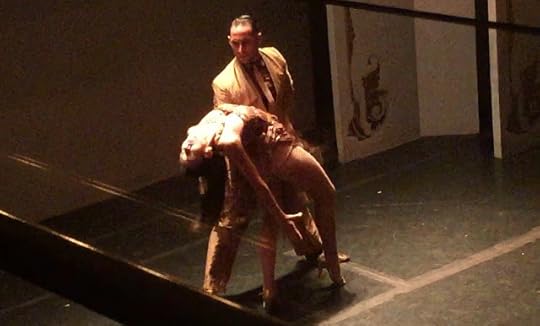
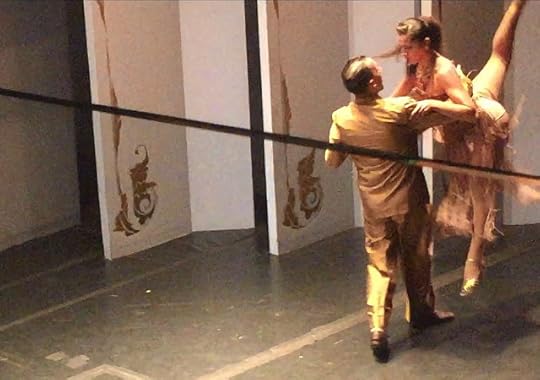

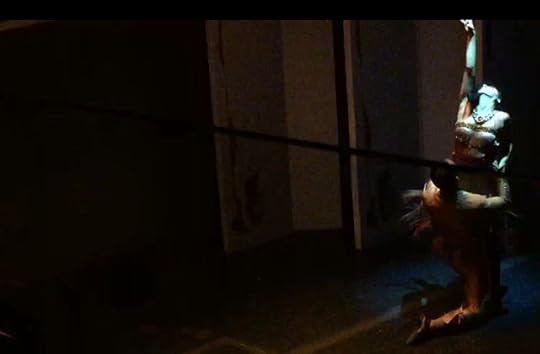
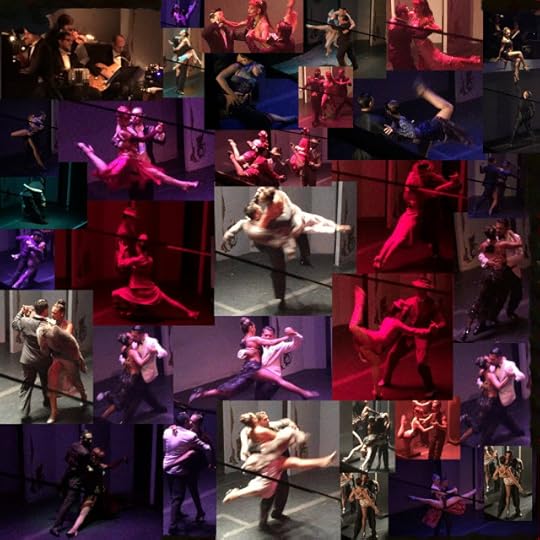

It is said BsAs is the way locals abbreviate Buenos Aires, the capital of Argentina. Non-locals reduce to simply BA. Where these distinctions come from or if they actually exist as described is a topic of urban legend that all too often morphs with the person telling it. To believe standard references, even where the city's name comes from has a convoluted history involving conquistadors, stinky marshes, the Virgin Mary, Mediterranean storms, and mosquitoes carrying the "bad air" of malaria. I suspect all of this is totally clear so far.
I could tell you about Buenos Aires with content like this ---
One story says Pedro de Mendoza, a 16th century Spanish sailor, named a new port where San Telmo is now after a religious icon that supposedly helped calm a storm in the Mediterranean. That religious icon was the Virgin Mary of the fair winds or "buen ayre." Another Spanish seaman, Juan de Garay, apparently intent on coming across more devoted than his predecessor, extended the name for the new port to “Ciudad de la Santísima Trinidad y Puerto de Nuestra Señora la Virgen María de los Buenos Aires” or the “City of the Most Holy Trinity and Port of Saint Mary of the Good Airs.” Lucky for everyone, especially airport gate attendants, that name was shortened in the 17th century to Buenos Aires. The portenos or "people of the port," as it's said locals call themselves, seem to like the name fine as it is now. Far beyond icons, their devotions span a much wider array of interests and passions.
Or I could tell you about Buenos Aires another way ---
Talking about an emotional experience often times leaves something to be desired. Namely, the emotional experience. And so, instead of talking about the history and current state of Buenos Aires, I'm going to simply share some photos taken during my recent stay with the people of the port. I'm tempted to claim it's a gallery of fine art - the art of being a porteno. But that would be pretentious as much wrong, as if a single visit from a tourist could ever capture the heart and soul of a place and its people. We know neither words nor photos ever convey the whole array of life in a city. To mix metaphors, it'll never be the whole banquet. At best, it's merely a sampler tasting menu. But oh so good. For that sample I say, muchas gracias Buenos Aires.



























































































Published on March 27, 2018 20:32
February 25, 2018
AVAILABLE NOW AT AMAZONFrom trauma to transformation -ove...
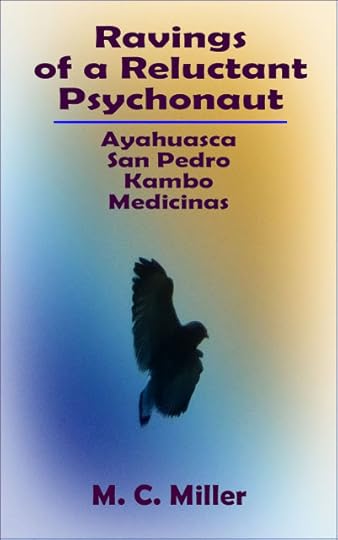
AVAILABLE NOW AT AMAZON
From trauma to transformation -over two years of sacred plant medicine experienceswith added commentary and perspective.
From trauma to transformation. This is a very intimate account of two and a half years in the life of a reluctant psychonaut. What started with a South American vacation for one IT consultant and his wife from the States ended with lives changed and doors of potential opened. Their vacation side trip plan was simple enough. He would go along to Ayahuasca and San Pedro plant medicine ceremonies to support his wife, who was drawn to the experience. Unlike her, he had no burning intention, no mystical calling, at most only a healthy curiosity and lingering interest in the possibilities of expanded consciousness.
What happened next thrust him on an arduous path. Along the way he couldn't shake alarming fear and doubt, growing paradoxes and dilemmas, and yet ultimately passages of self-discovery and tremendous healing were realized. All along he took personal notes, furious notes of his evolving post-ceremony ravings. Residual terror and unanswered questions from the first Ayahuasca ceremony haunted him for over a year. Frustrated to explain what had happened, he grew desperate to find peace within. To that end, synchronicities and life changes mixed with chance meetings with people in South America. He was led to a remarkable shaman, a man who listened and responded with techniques and medicines that triggered a most unlikely breakthrough.
This is that journey, recorded as it happened with wider perspectives of hindsight added. It's a journey the author couldn't have foreseen and never guessed would become his future. It exists as another testament to the power of sacred plant medicines. That testament reinforces the power to reconnect with the strength within all of us to transform our lives.
Integration of profound entheogenic experiences is so important and yet for many this critical step remains elusive. In a heartfelt afterword, his wife describes coming to grips with having the tables turned on who was supporting whom. While she worked through her own process with the medicines, she also discovered what it means to live with someone deeply troubled by what's possible in Ayahuasca space. Her perspective on that two year odyssey, how both of them not only got through it but blossomed as a result, is an invaluable example for anyone who has a friend or loved one in the midst of facing their personal demons as the result of plant medicine ceremonies.
The hope is that something in the telling of his ordeal and ultimate triumph may help someone else. It could be someone who hears the call to the sacred plant medicines or someone, having already heeded that call, struggles to integrate all it means to them.
Published on February 25, 2018 08:39
October 29, 2017
Where to Begin at The End?Returning from a whirlwind vaca...
Where to Begin at The End?
Returning from a whirlwind vacation can be a blessing and a curse simultaneously. Resting up and being comfortable in the familiar back home is the blessing. And yet the sudden end of the intense variety, novelty, fun, and experience overload is jarring in stark contrast, which is the curse. It can leave one feeling bereft of things to do, sensing the uber-ride has ended and all that's left to do is twiddle one's thumbs. And I suppose the more interesting and involving the vacation was, the more this blessing and curse comes into play.
Case in point. To ease my re-entry back home after a recent vacation, one of the things I've tried to do is sort through and backup the photos I took. This has backfired to a great extent for the photos have only reinforced the cursed aspect of being off the vacation ride. After all, I took nearly 3000 photos while in Peru. That's quite a lot to revisit and ultimately relive. I should have expected that processing the photos might delay my full reentry back home.
As a result, in many ways, I feel a significant part of me is still navigating the cobblestones of Cuzco feeling the energy of ancestors long gone after being cut down by the invader's swords, still lost in nature in the Sacred Valley, still enthralled by the ancient creations on display in the museums, still riding the train through deep river gorges to Aqua Calientes, still astonished at the history and details of Machu Picchu, still climbing with amazement through a dozen other Incan and pre-Incan ruin sites, still giving an offering of three coca leaves to Pachamama during my solo entry into the Temple of the Moon, still enjoying the wide energetic sweep and sea-side beauty of Lima, and still enjoying being with the people of Peru.
The more I think about it, the distinction of having a blessing and a curse is not only artificial, it is wrong. When we visit people and places that stay with us, no matter how long ago the journey ended and one gets settled back home - that can only be a good thing, and a blessing all around. Such experiences are meant to become a part of us, and we of them. There is no curse involved unless we stop moving forward. Which leaves me to consider my opening question in a new light - where to begin at the end? Thinking through it, I know the answer now. The way one begins is with even newer experiences, more intense variety and novelty and fun. And all of that, all of those new people and places will also become a part of us. Nothing is ever left behind. We simply expand ourselves to encompass a more complete understanding of our world.
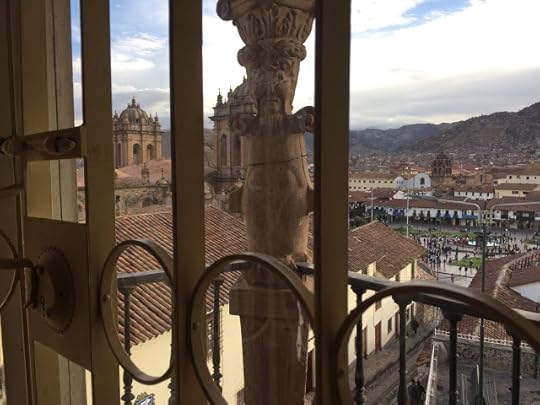
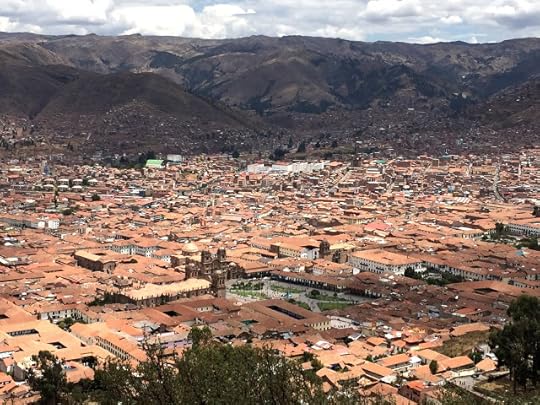
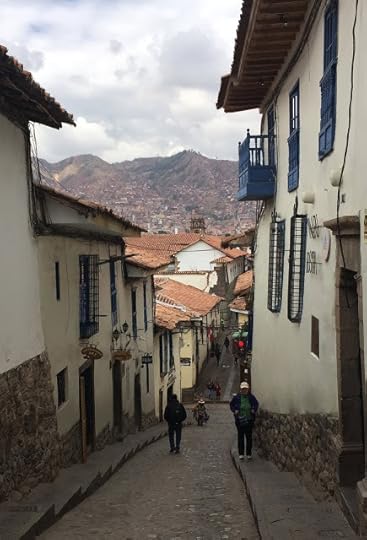
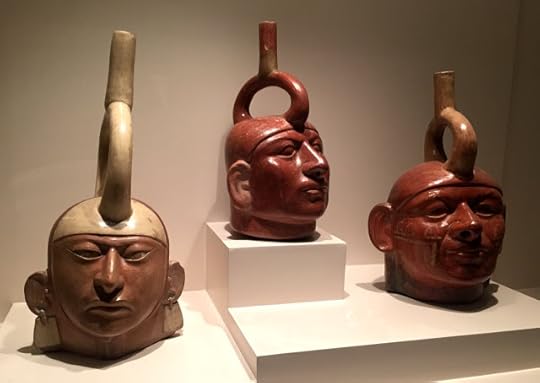
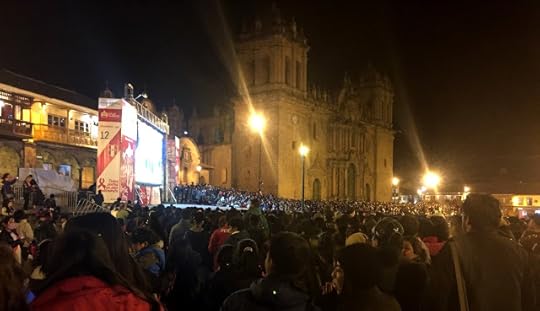
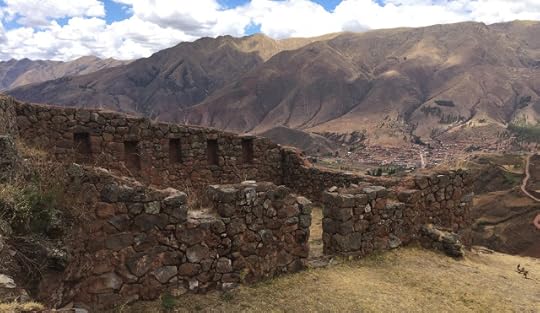
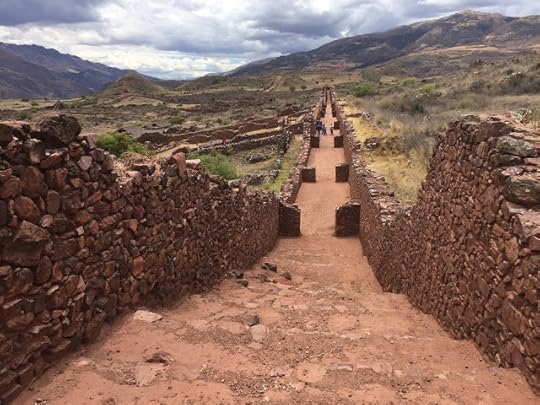
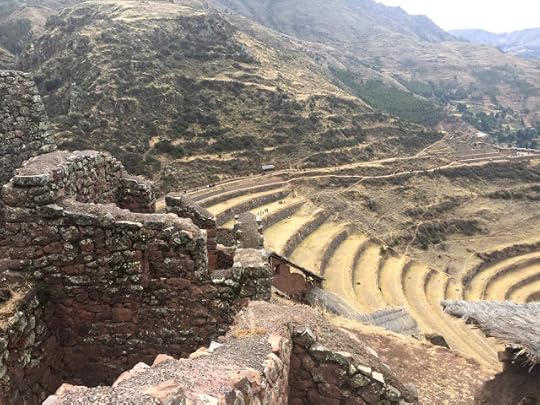
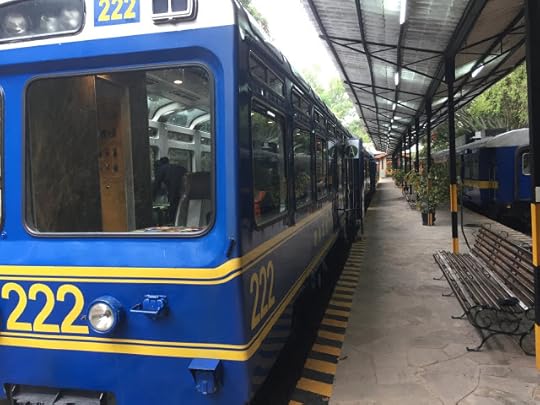
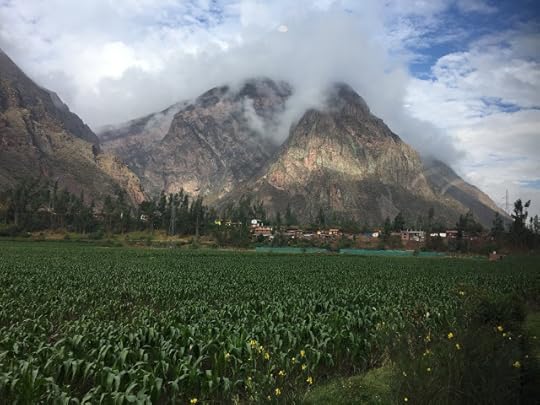
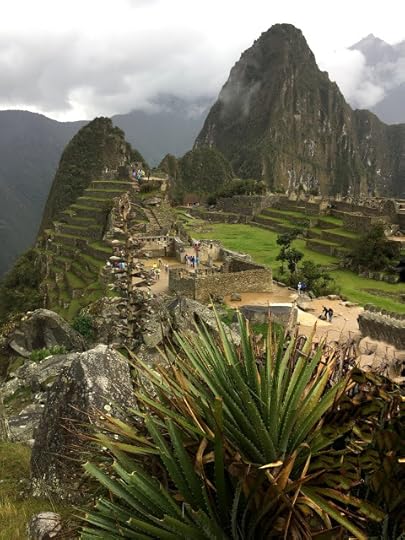
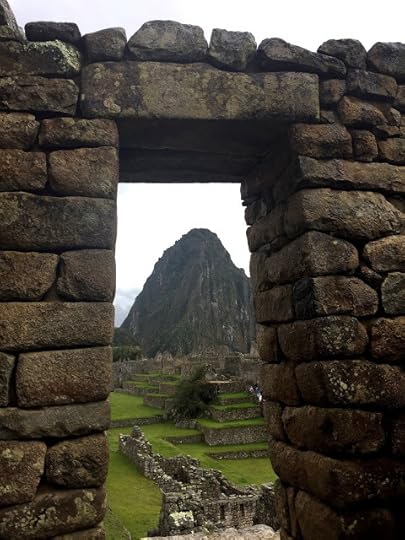
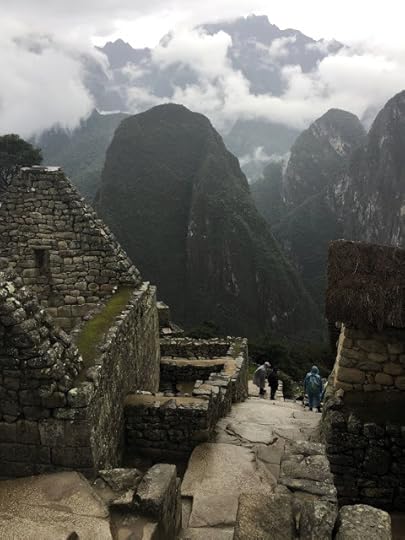
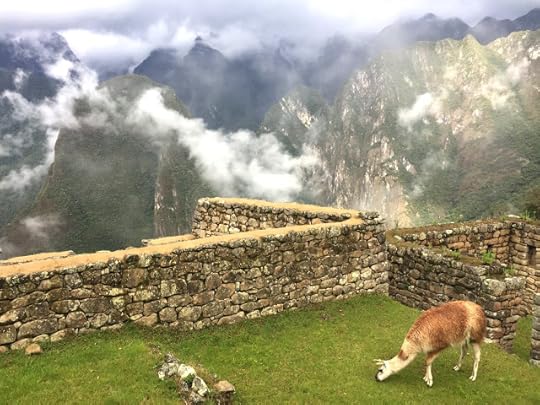
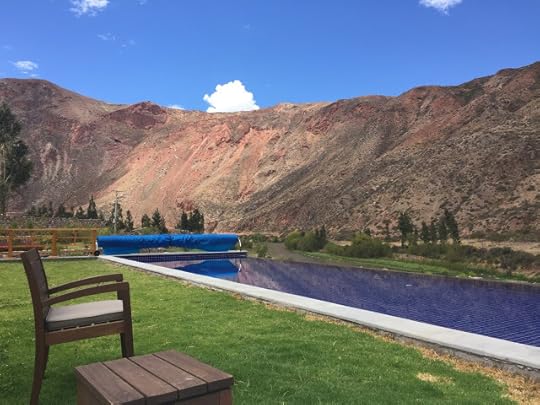
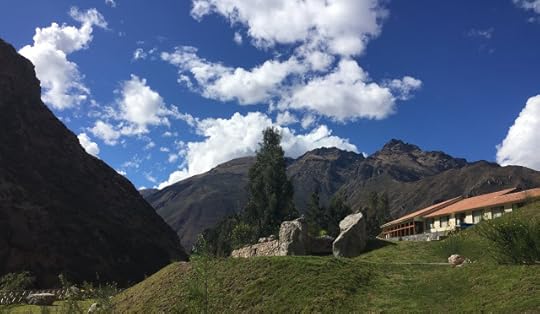


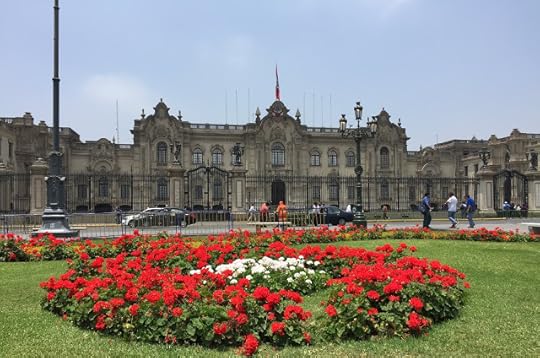
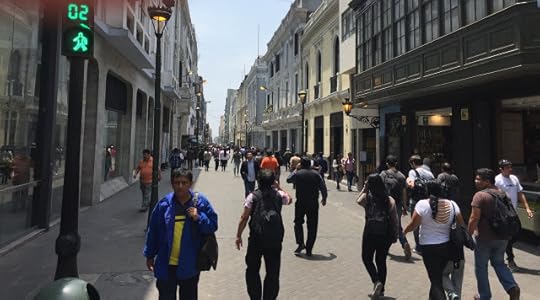
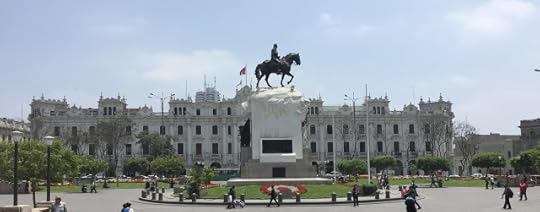
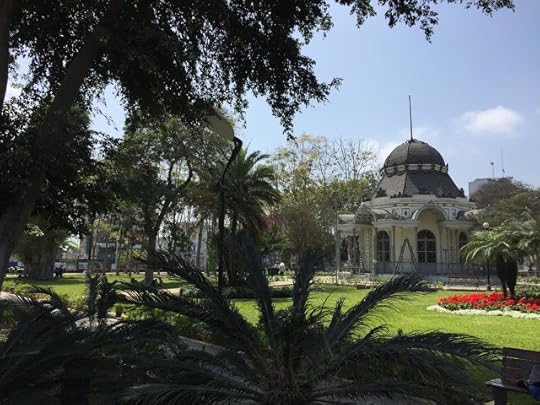
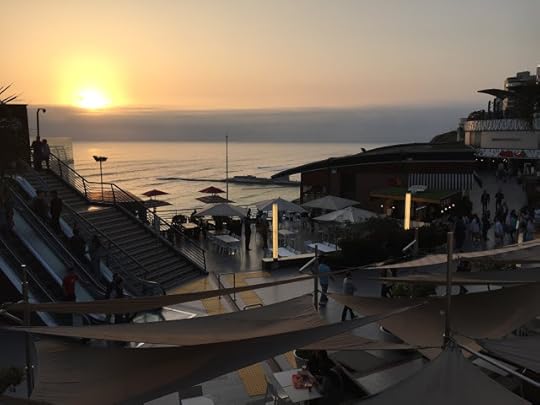
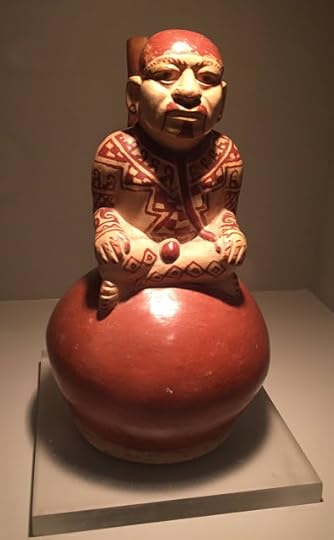
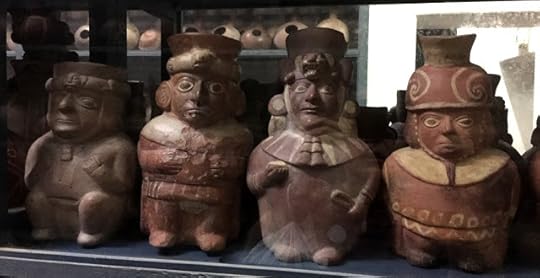
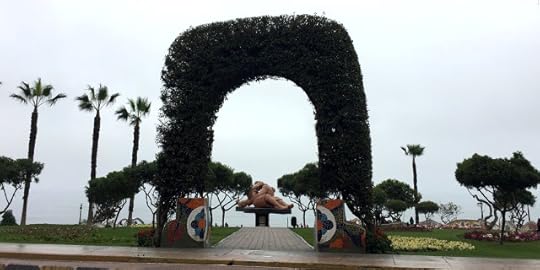
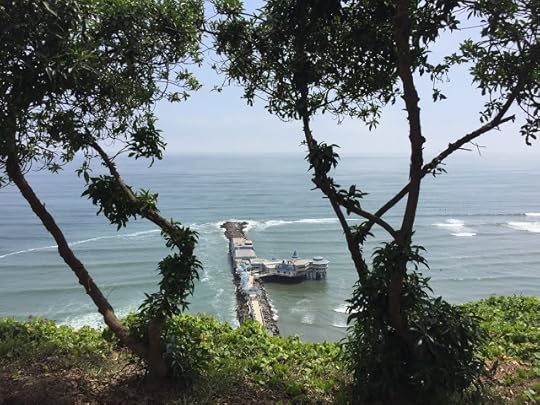

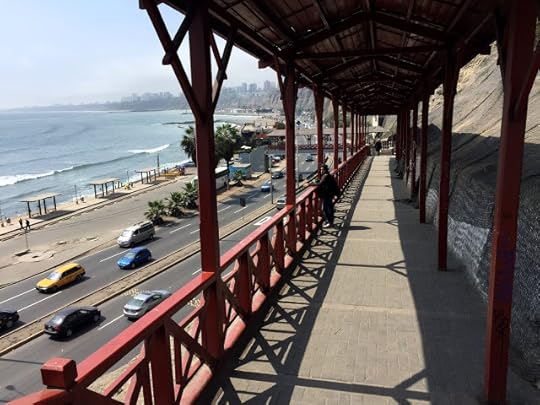
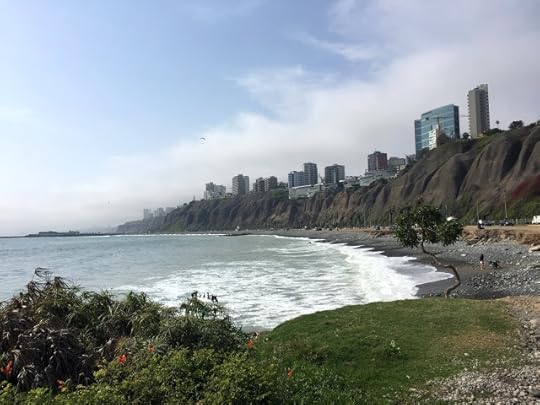
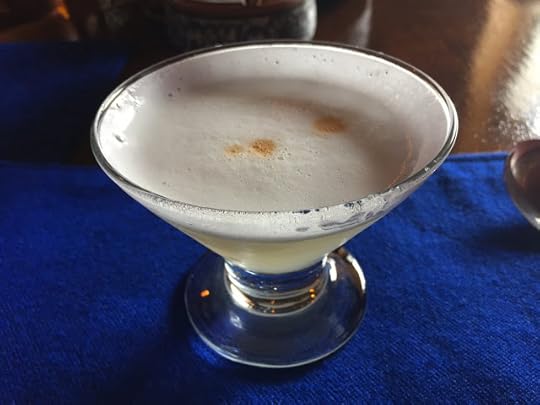
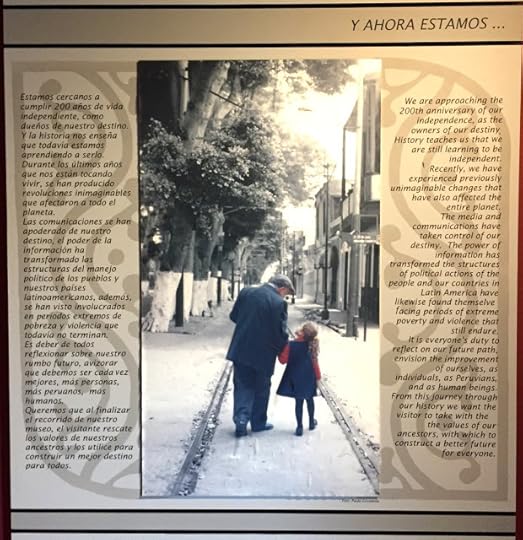
Returning from a whirlwind vacation can be a blessing and a curse simultaneously. Resting up and being comfortable in the familiar back home is the blessing. And yet the sudden end of the intense variety, novelty, fun, and experience overload is jarring in stark contrast, which is the curse. It can leave one feeling bereft of things to do, sensing the uber-ride has ended and all that's left to do is twiddle one's thumbs. And I suppose the more interesting and involving the vacation was, the more this blessing and curse comes into play.
Case in point. To ease my re-entry back home after a recent vacation, one of the things I've tried to do is sort through and backup the photos I took. This has backfired to a great extent for the photos have only reinforced the cursed aspect of being off the vacation ride. After all, I took nearly 3000 photos while in Peru. That's quite a lot to revisit and ultimately relive. I should have expected that processing the photos might delay my full reentry back home.
As a result, in many ways, I feel a significant part of me is still navigating the cobblestones of Cuzco feeling the energy of ancestors long gone after being cut down by the invader's swords, still lost in nature in the Sacred Valley, still enthralled by the ancient creations on display in the museums, still riding the train through deep river gorges to Aqua Calientes, still astonished at the history and details of Machu Picchu, still climbing with amazement through a dozen other Incan and pre-Incan ruin sites, still giving an offering of three coca leaves to Pachamama during my solo entry into the Temple of the Moon, still enjoying the wide energetic sweep and sea-side beauty of Lima, and still enjoying being with the people of Peru.
The more I think about it, the distinction of having a blessing and a curse is not only artificial, it is wrong. When we visit people and places that stay with us, no matter how long ago the journey ended and one gets settled back home - that can only be a good thing, and a blessing all around. Such experiences are meant to become a part of us, and we of them. There is no curse involved unless we stop moving forward. Which leaves me to consider my opening question in a new light - where to begin at the end? Thinking through it, I know the answer now. The way one begins is with even newer experiences, more intense variety and novelty and fun. And all of that, all of those new people and places will also become a part of us. Nothing is ever left behind. We simply expand ourselves to encompass a more complete understanding of our world.
































Published on October 29, 2017 12:24
On The Beach in Lima, PeruMany iconic pictures are taken ...
On The Beach in Lima, Peru
Many iconic pictures are taken from on top the scenic cliffs at Larcomar, in the Miraflores District of Lima -- but some equally scenic views can be had by going down on the beach to look back up at the cliffs where Larcomar is nestled.
Many iconic pictures are taken from on top the scenic cliffs at Larcomar, in the Miraflores District of Lima -- but some equally scenic views can be had by going down on the beach to look back up at the cliffs where Larcomar is nestled.
Published on October 29, 2017 09:55
October 28, 2017
Imagine a place...where there are regulations and fines&n...
Imagine a place...
where there are regulations and fines
for unattended car alarms
and unnecessary horn honking.
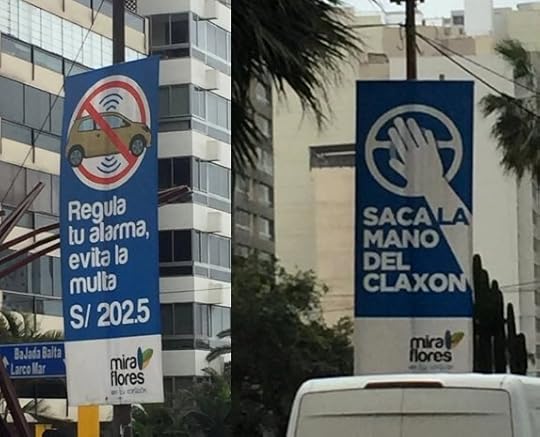
where there are regulations and fines
for unattended car alarms
and unnecessary horn honking.

Published on October 28, 2017 14:43




